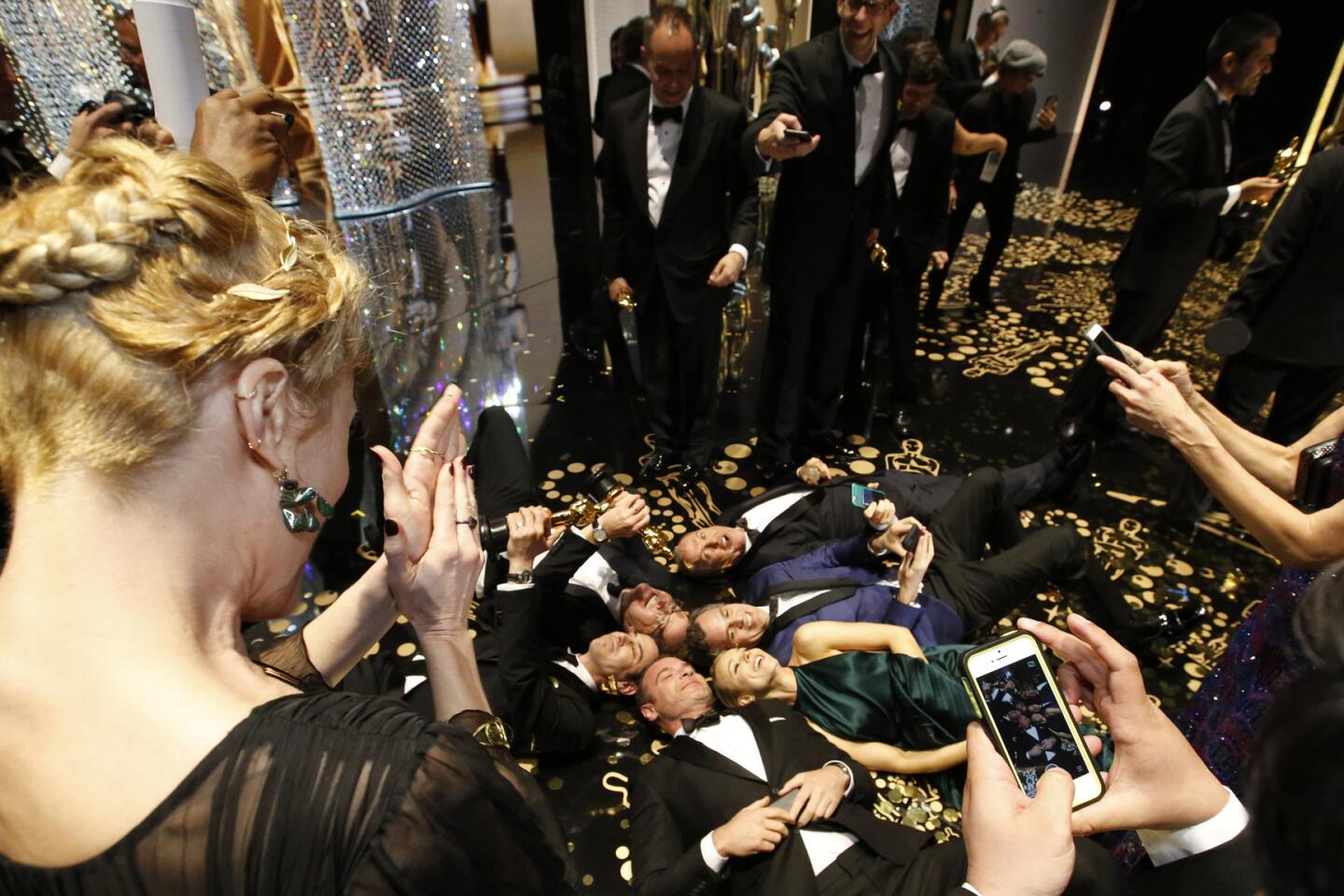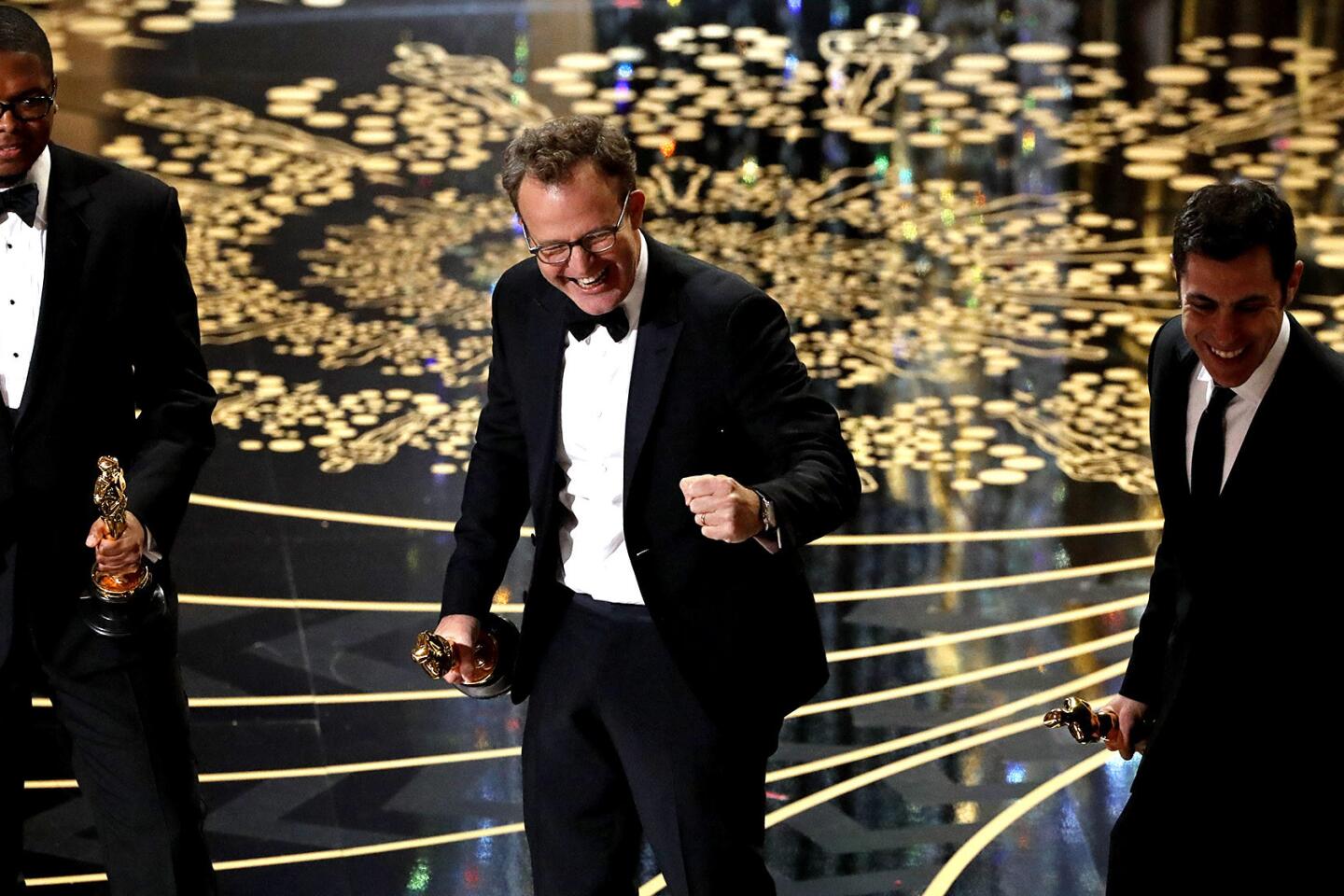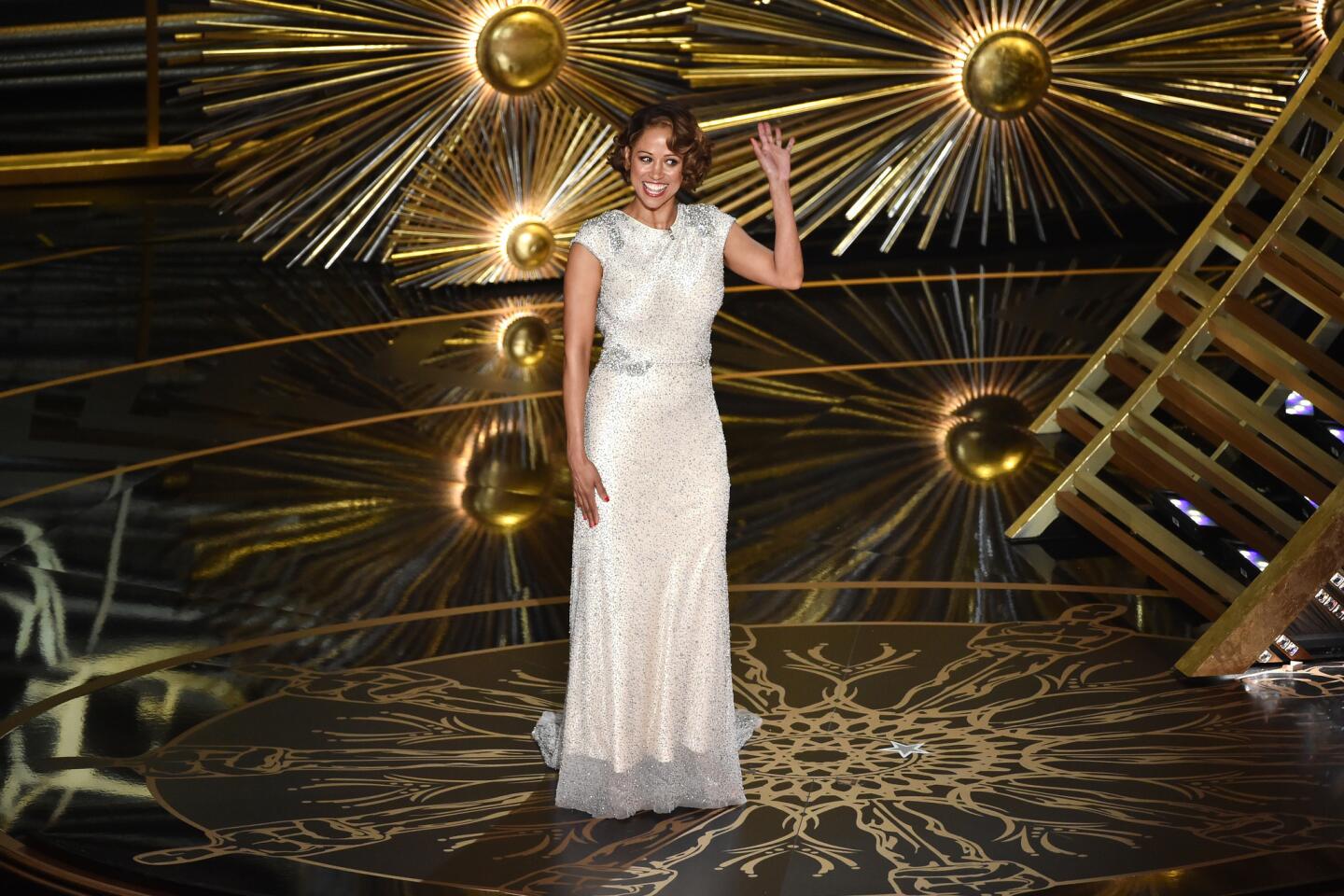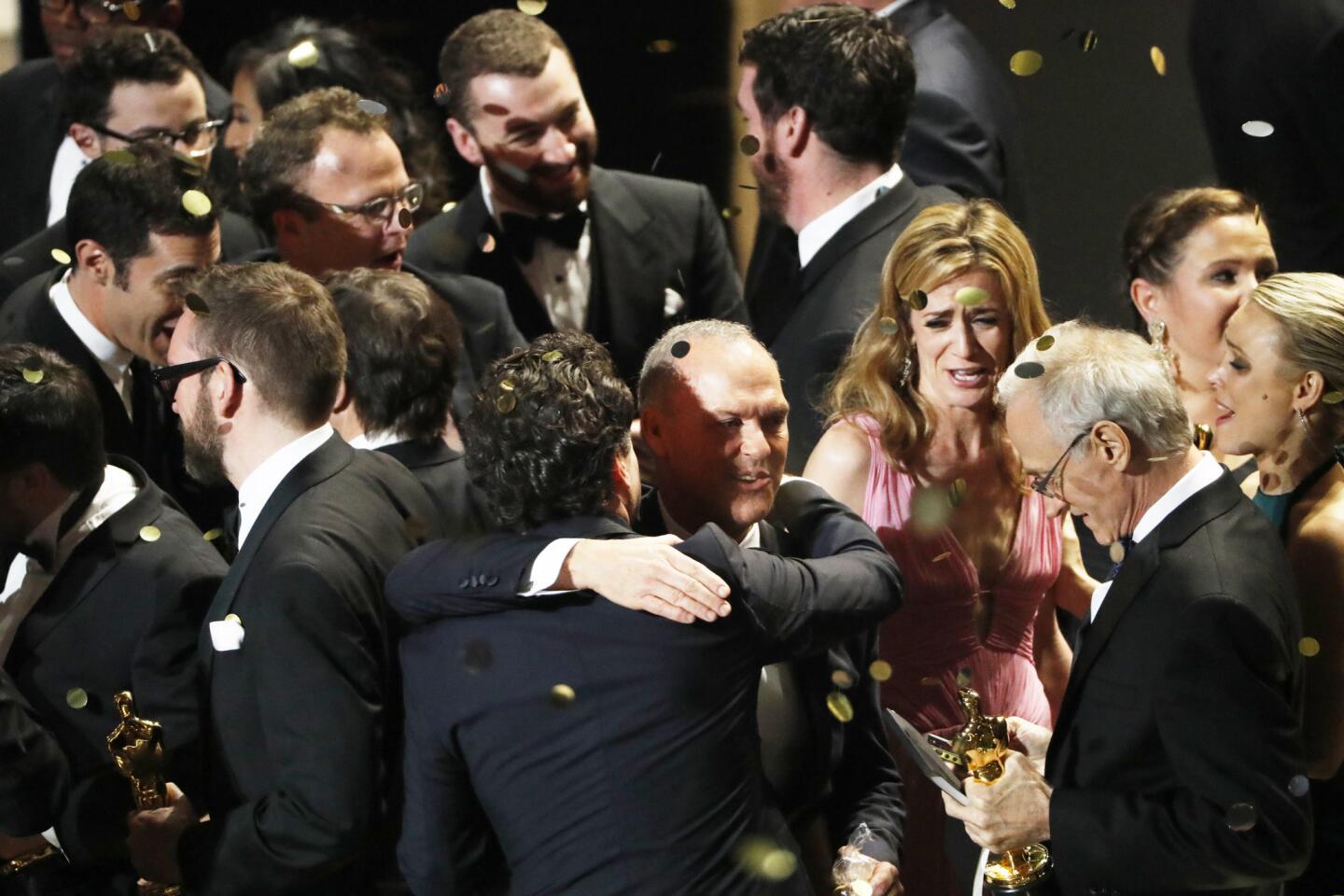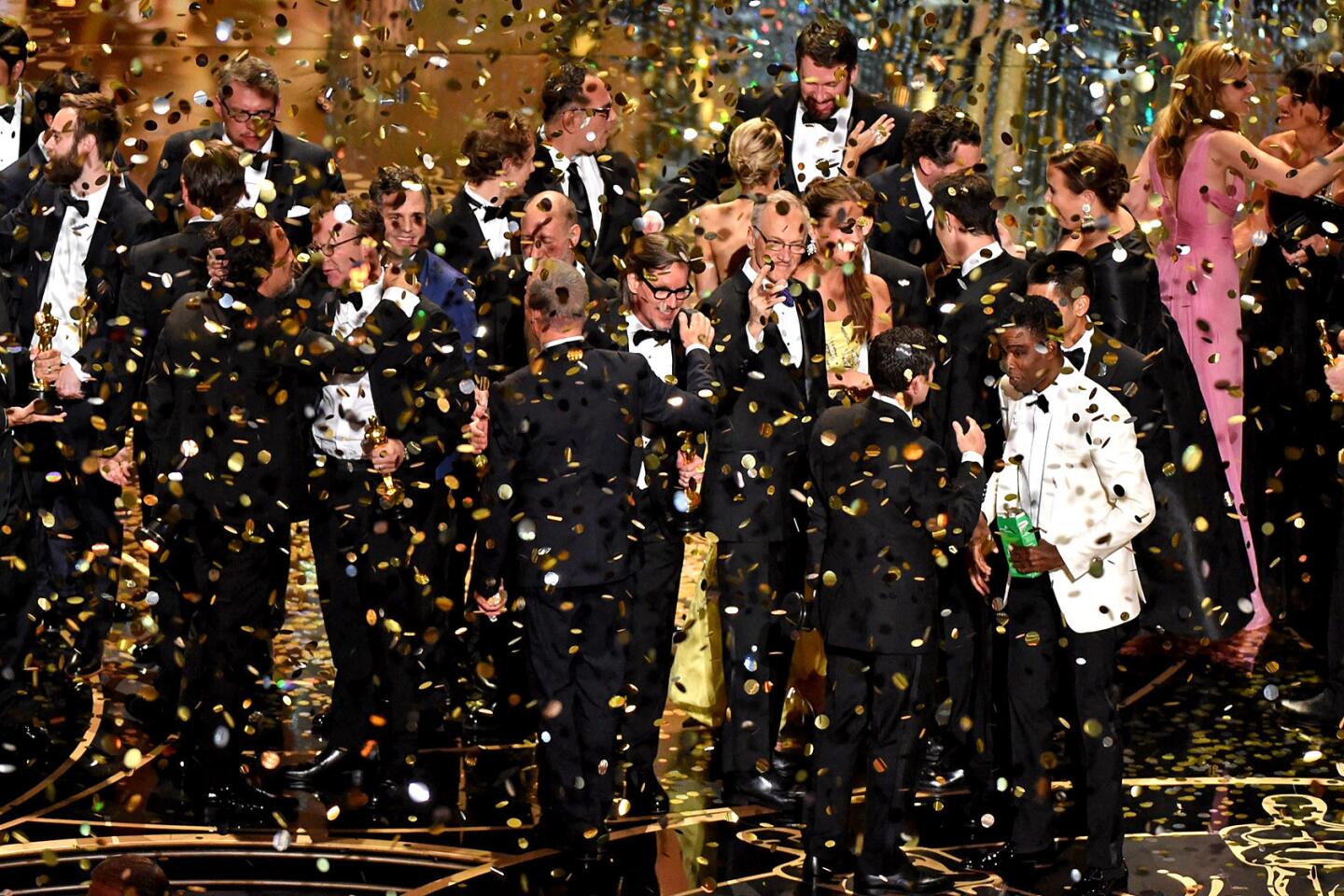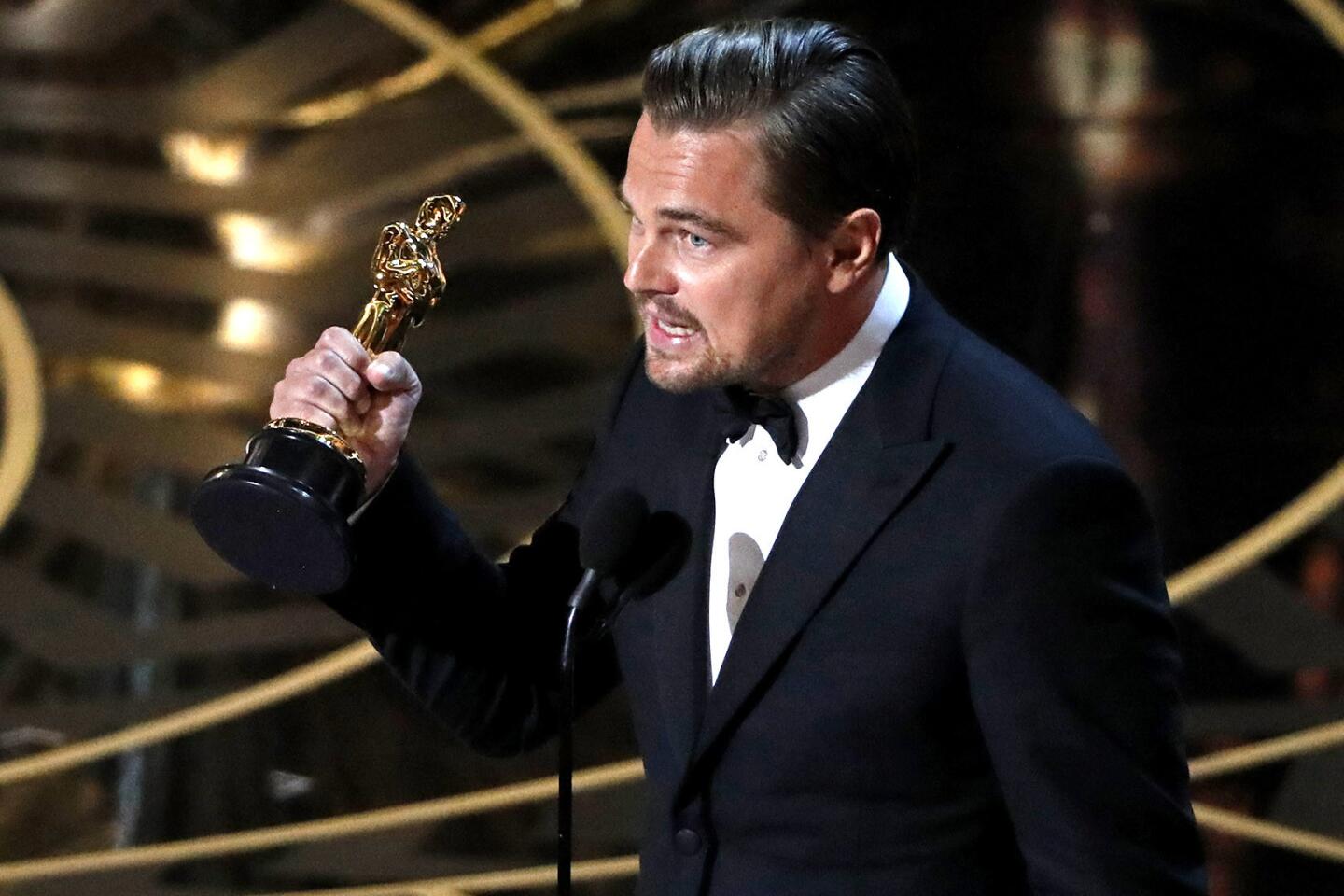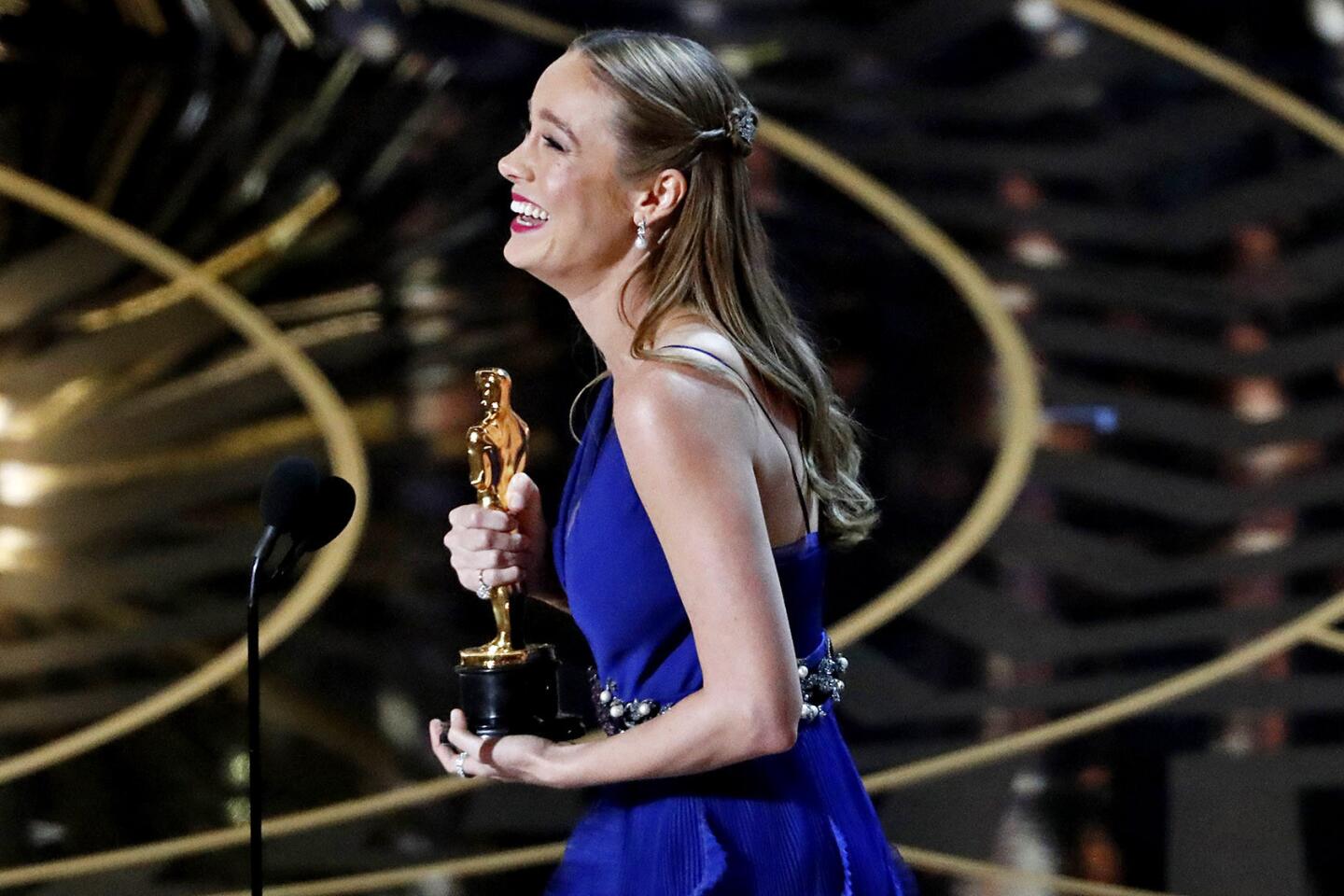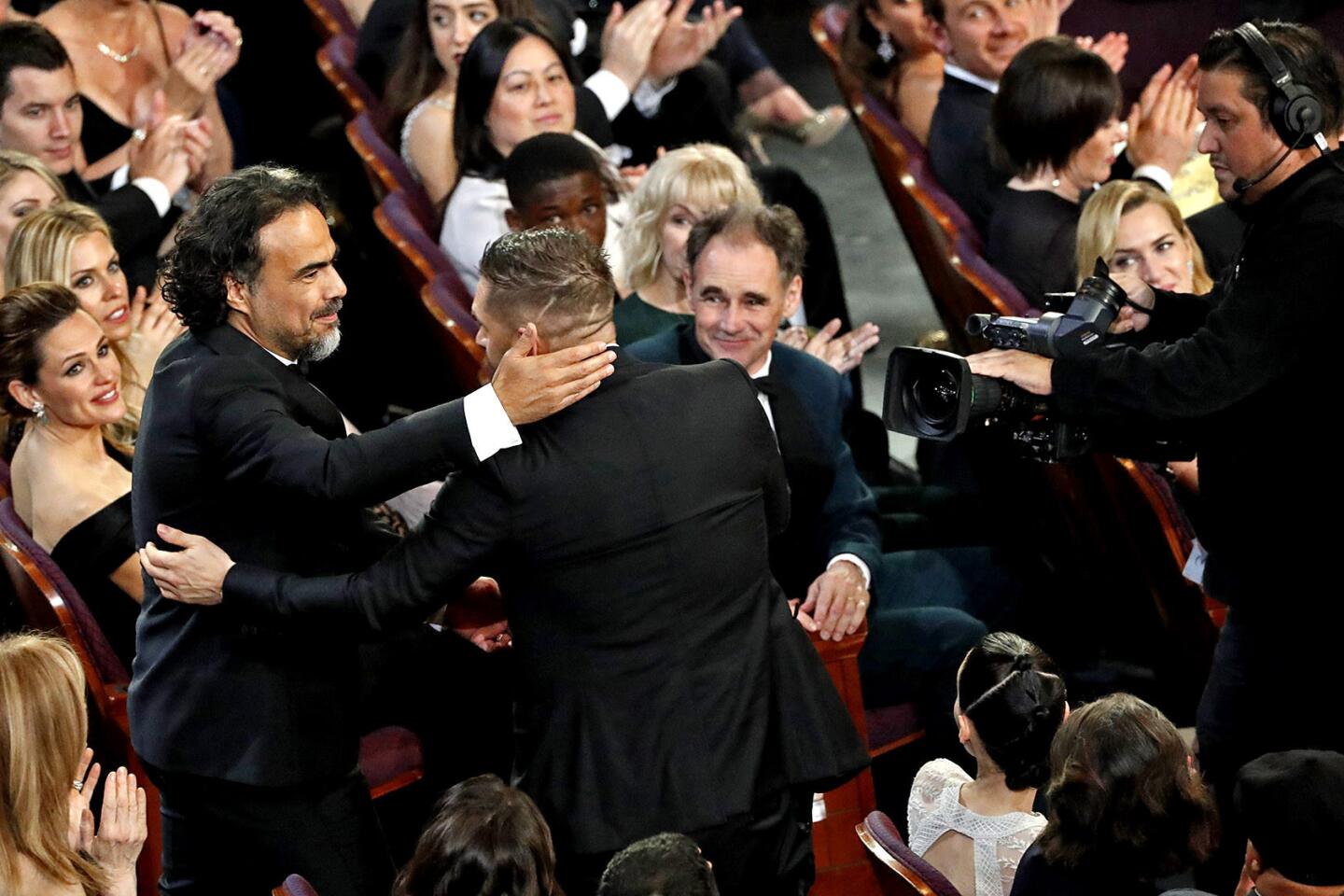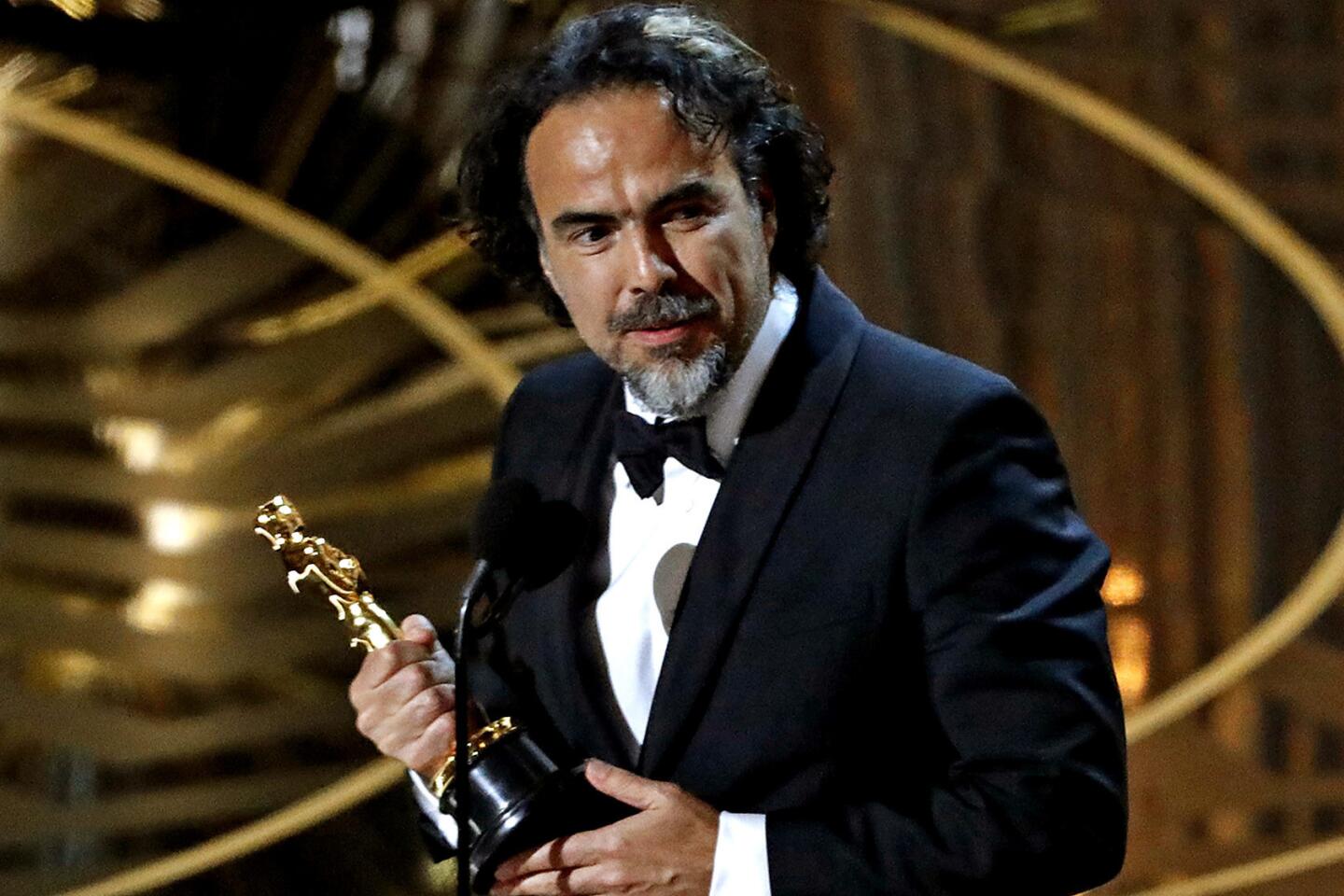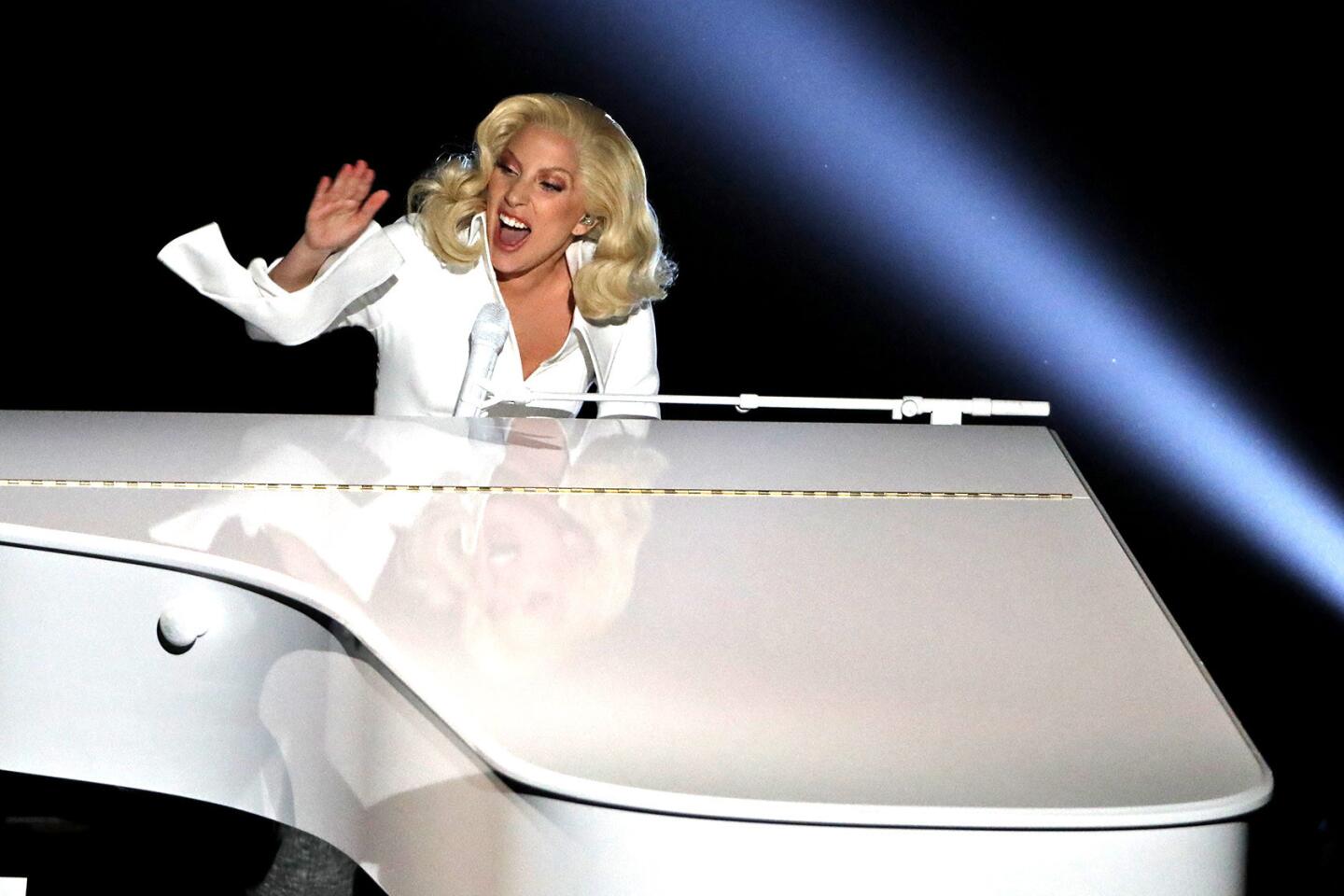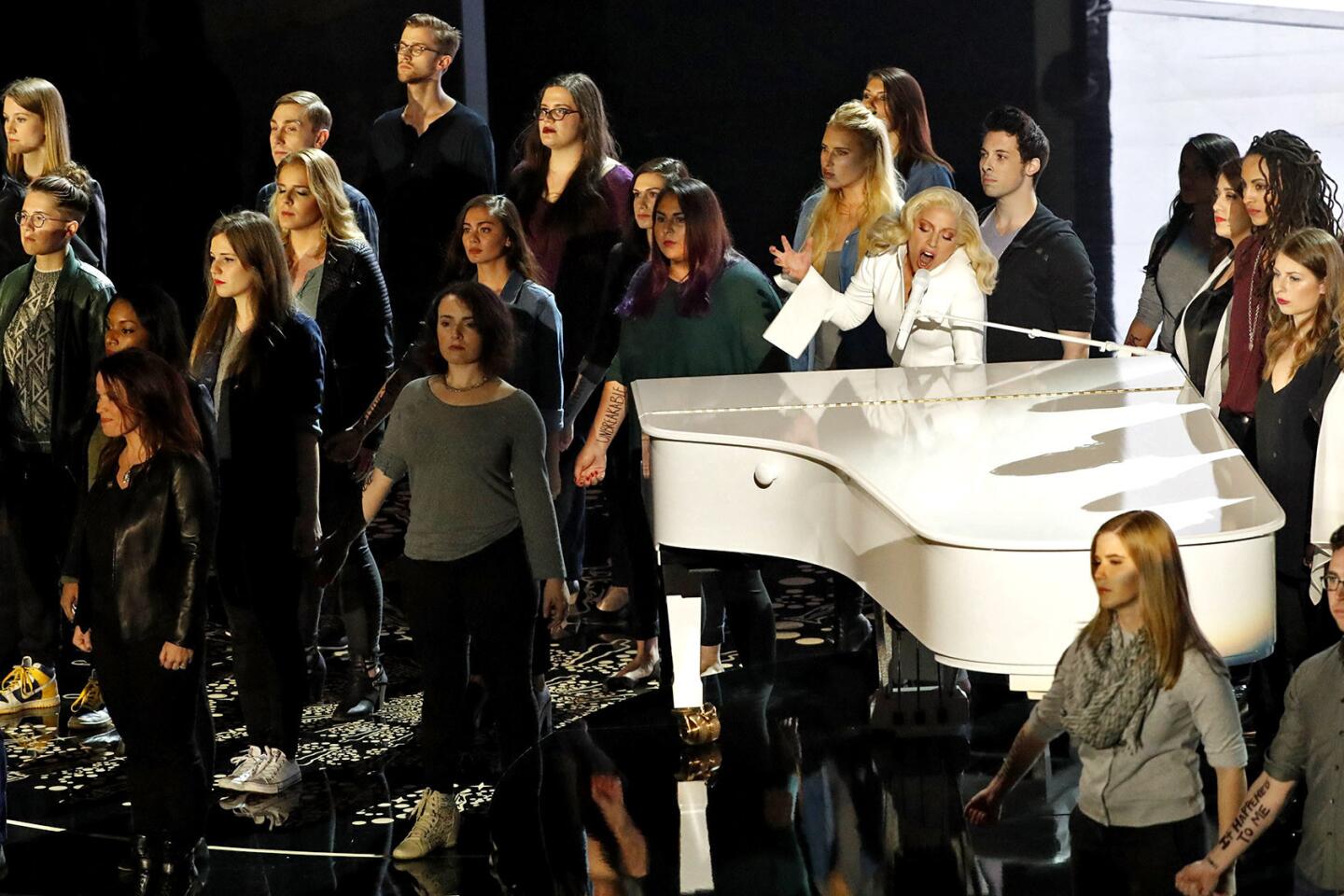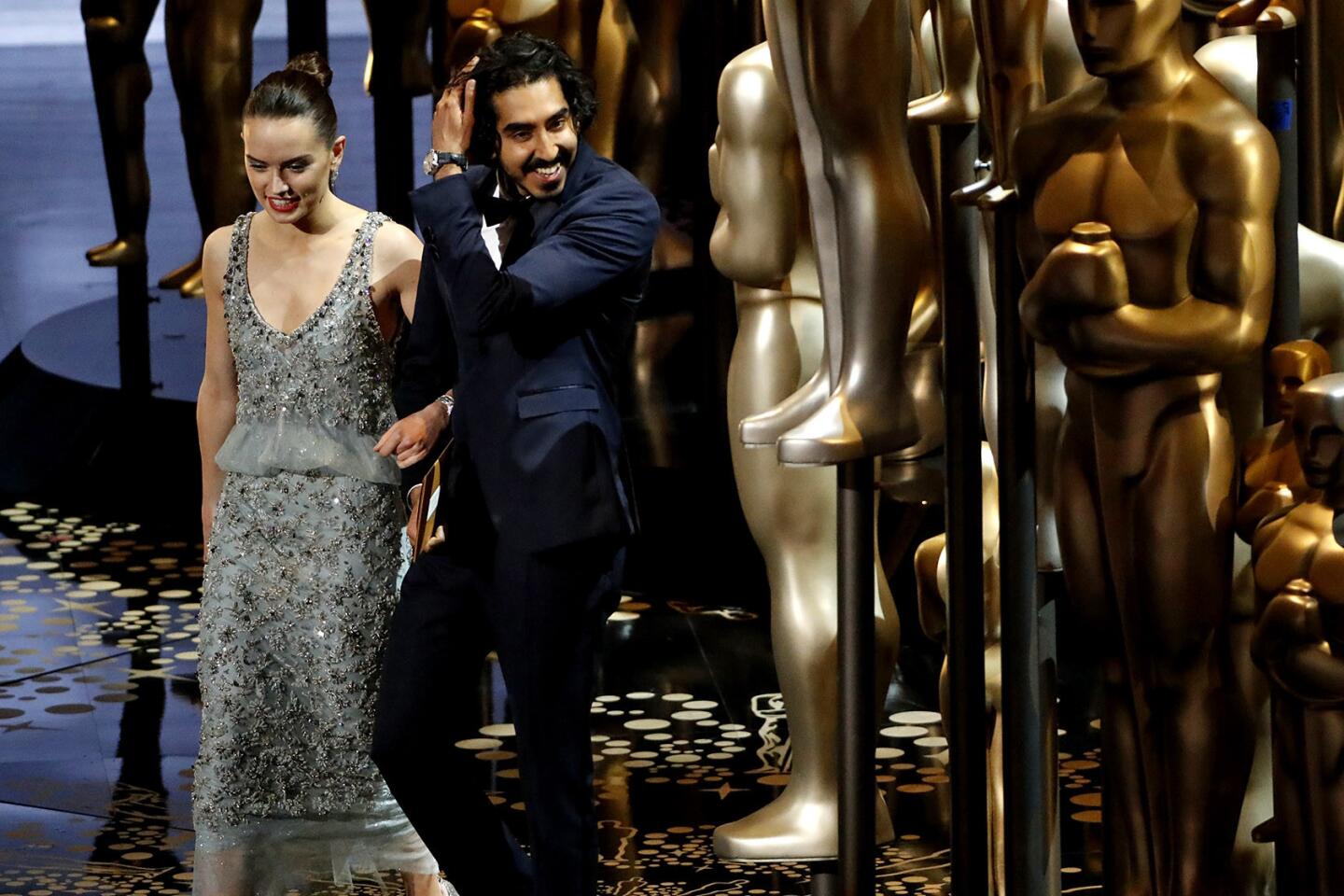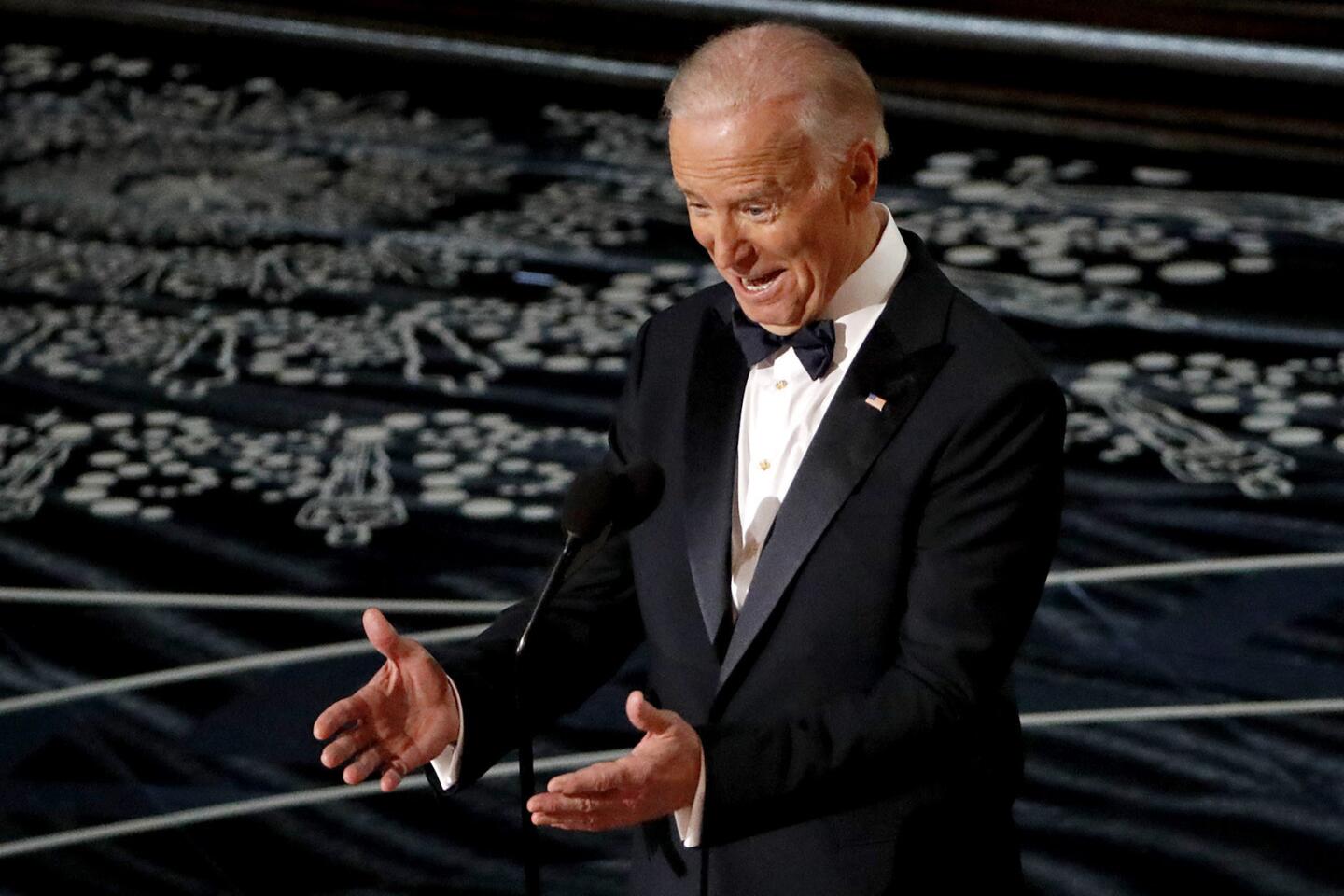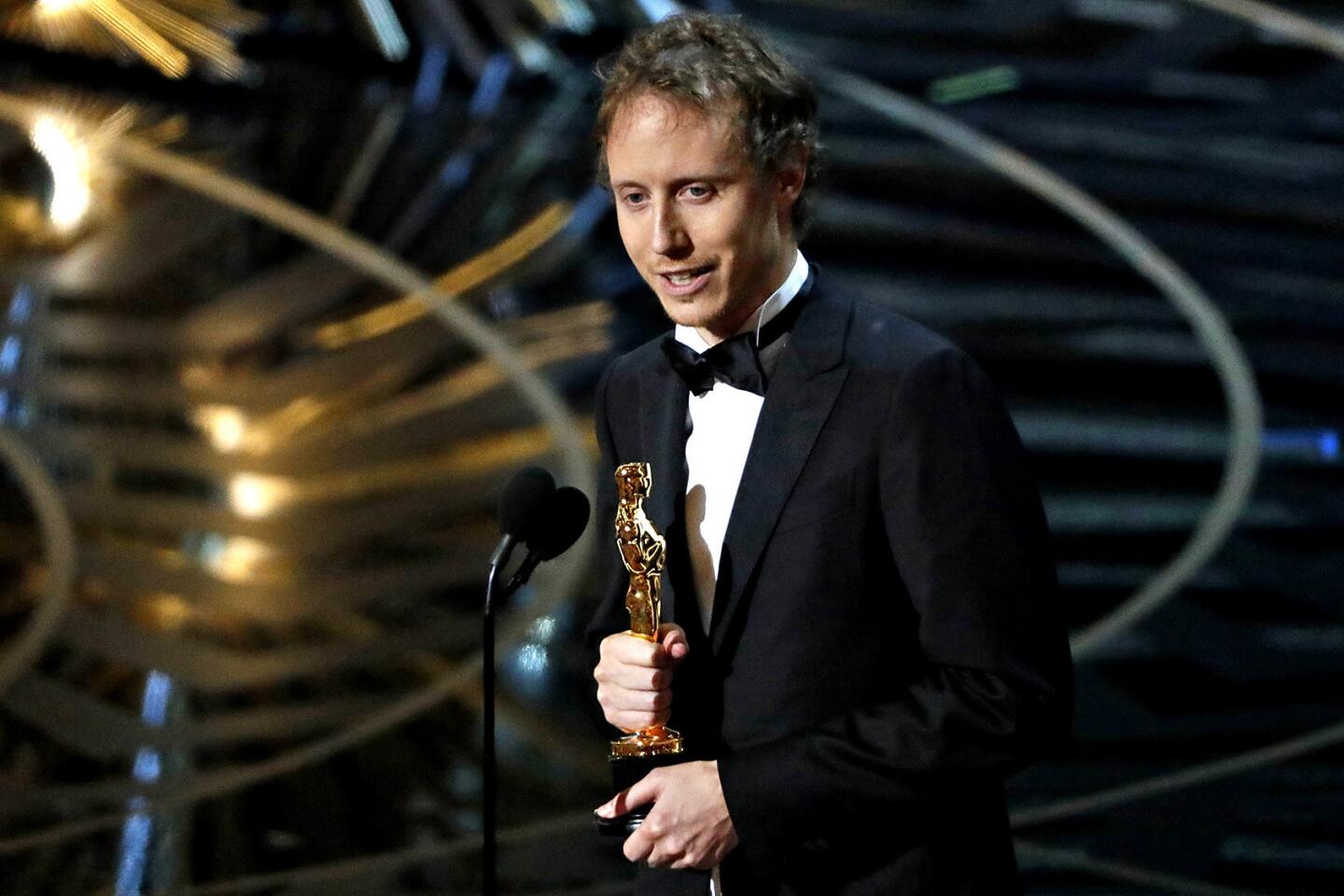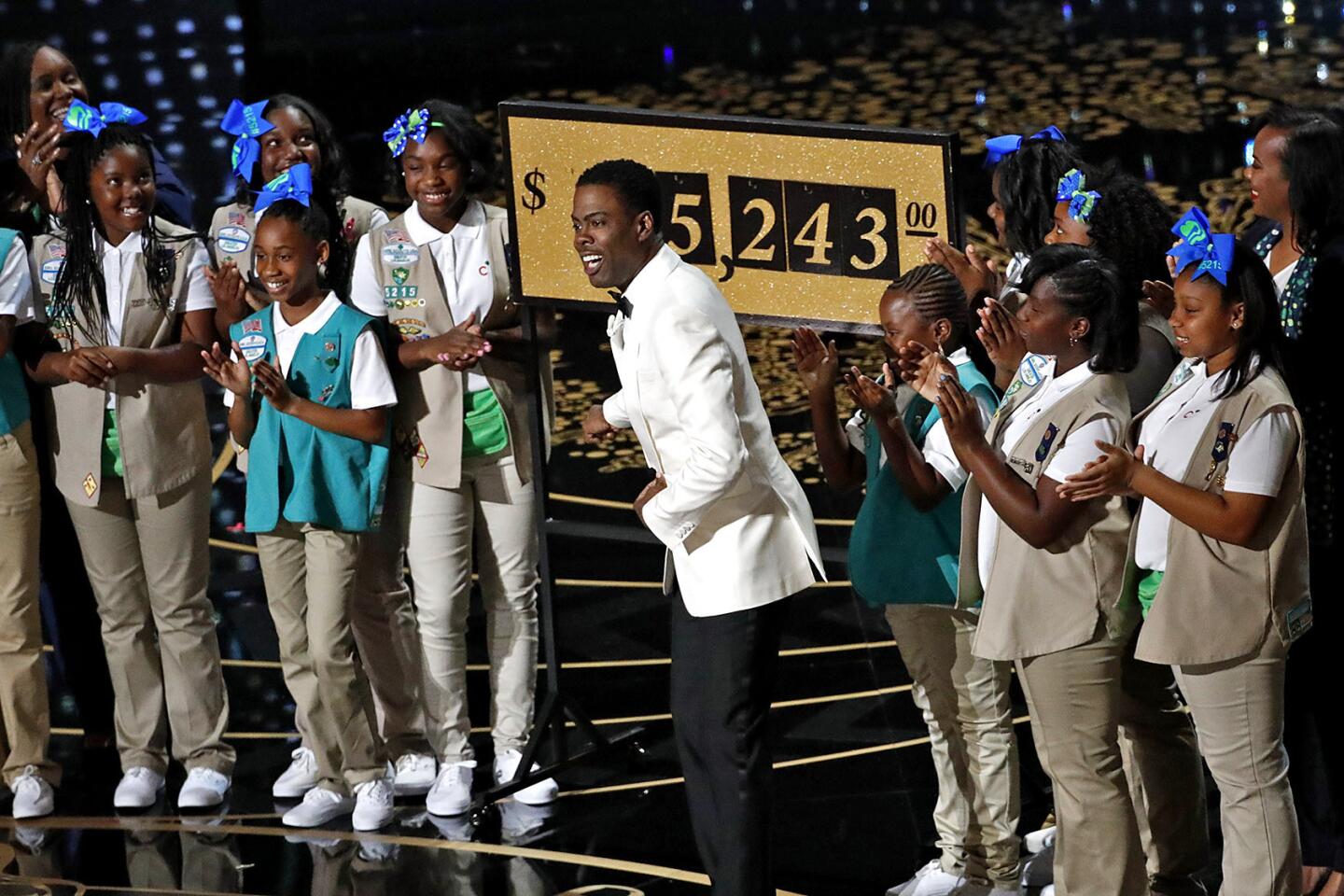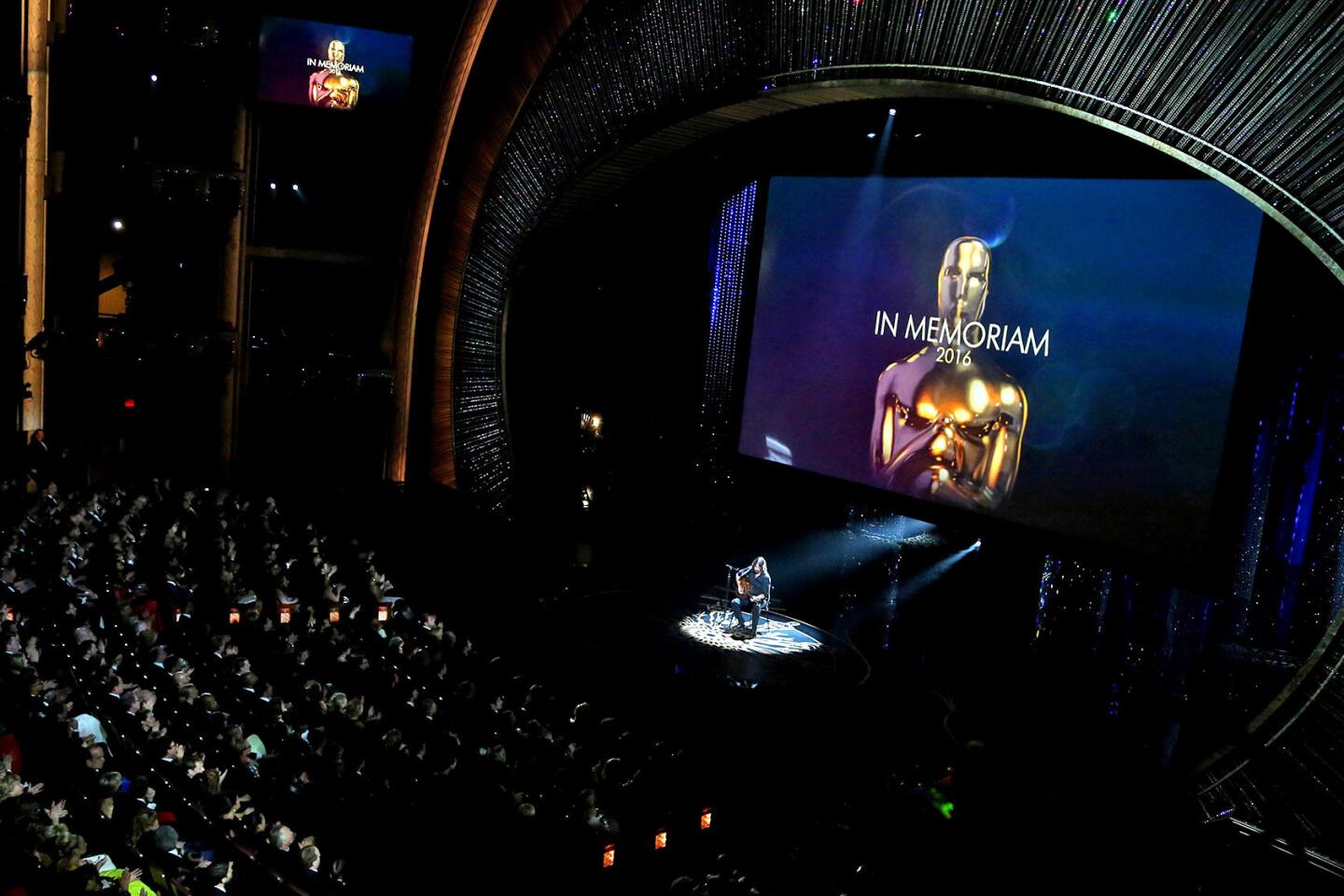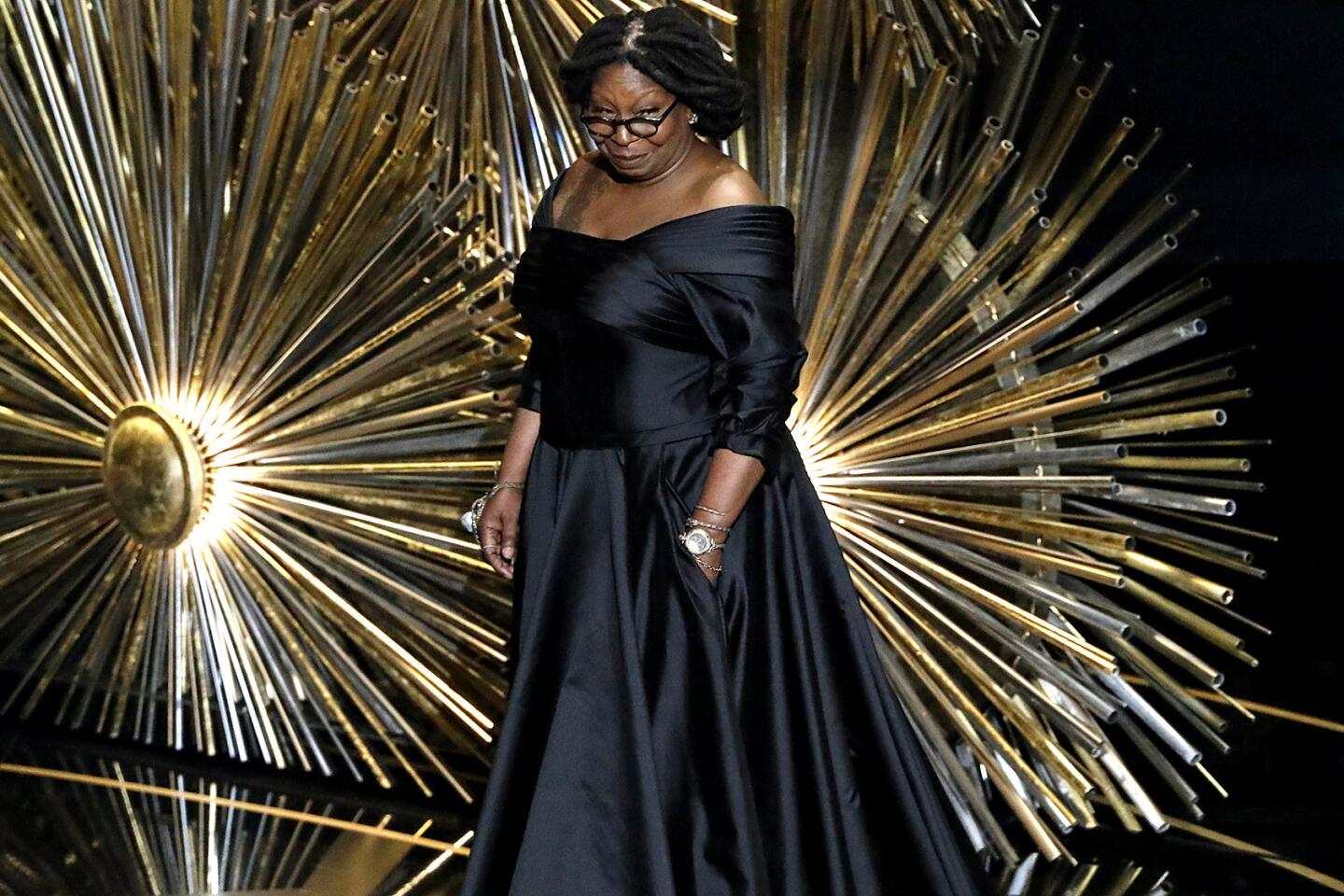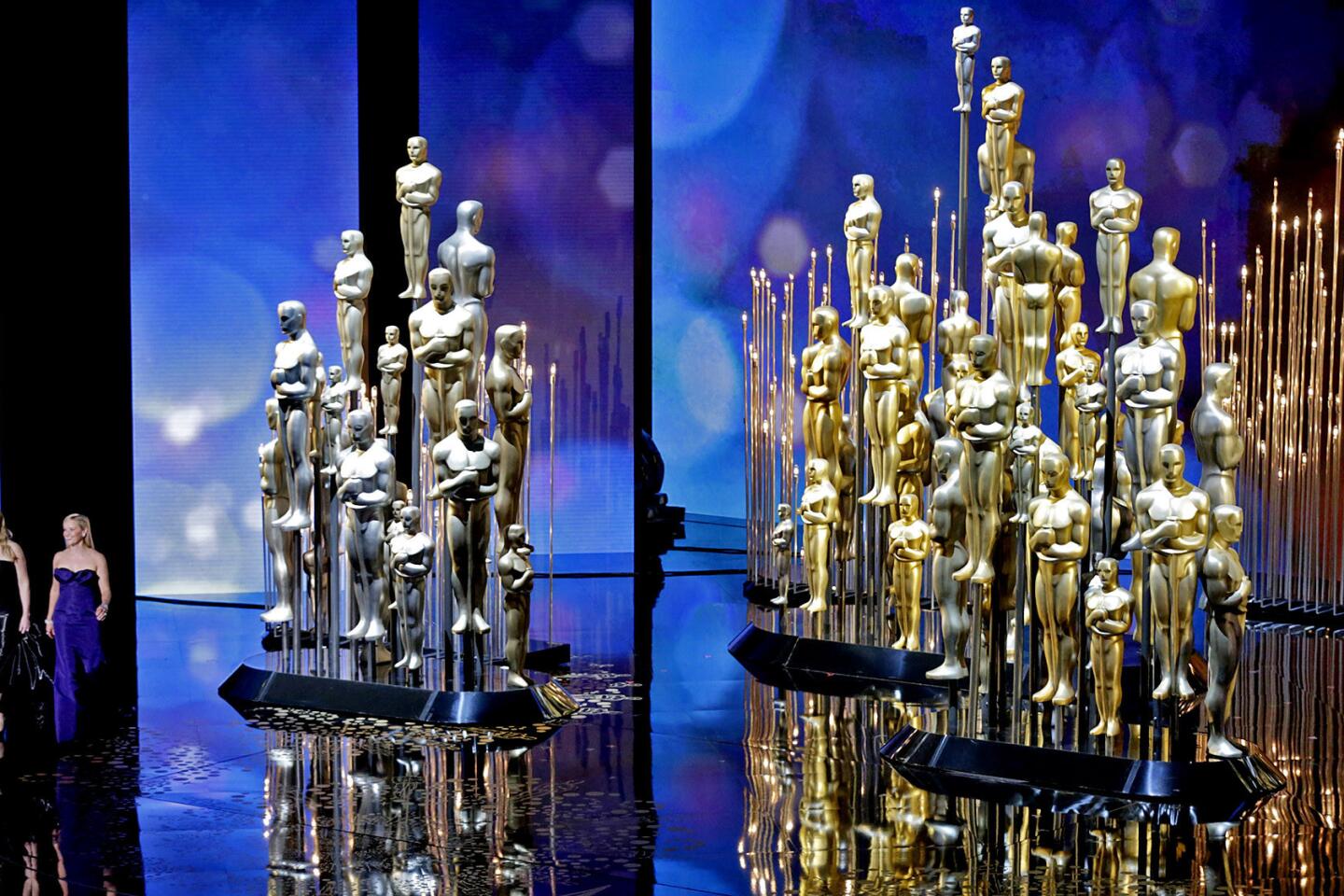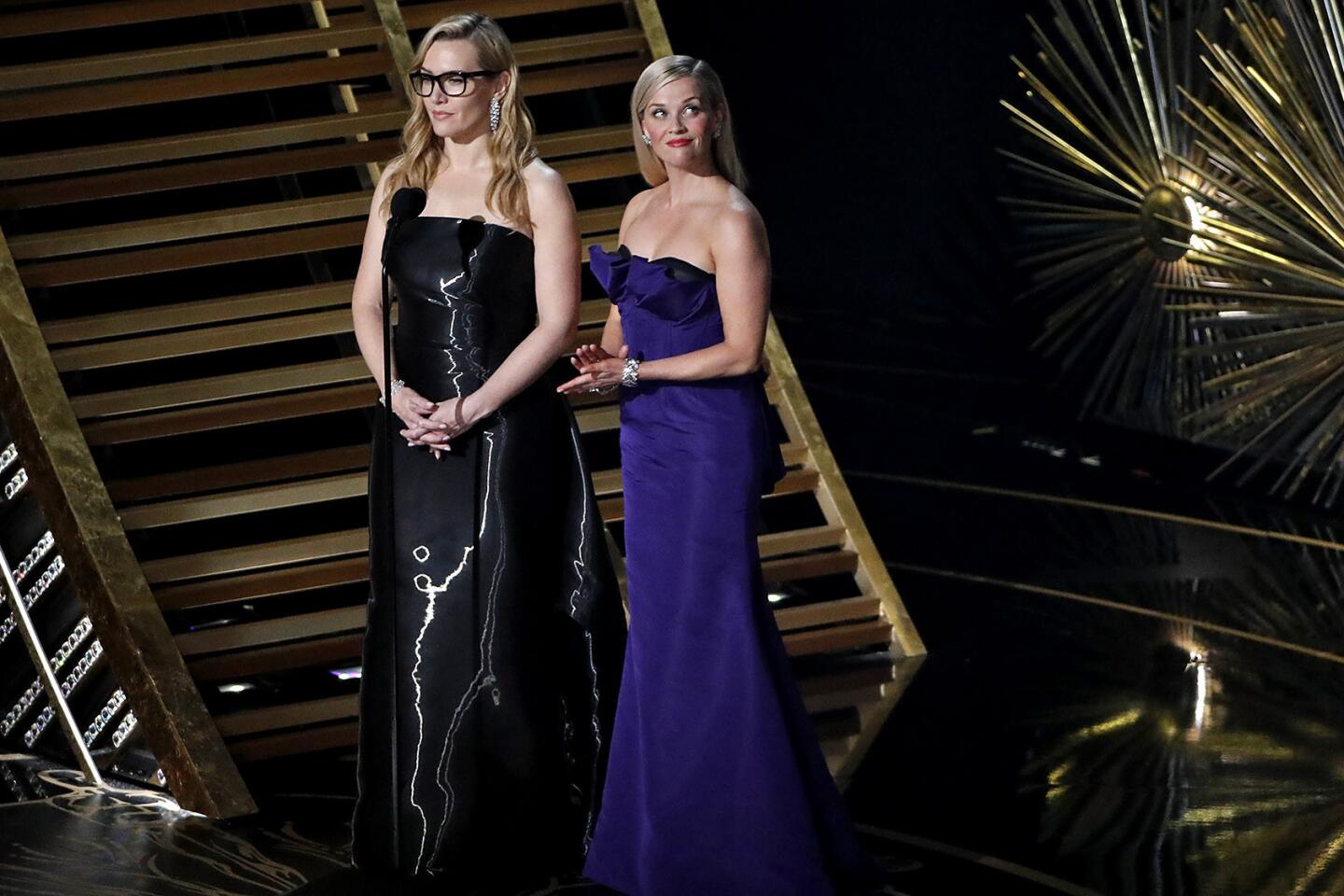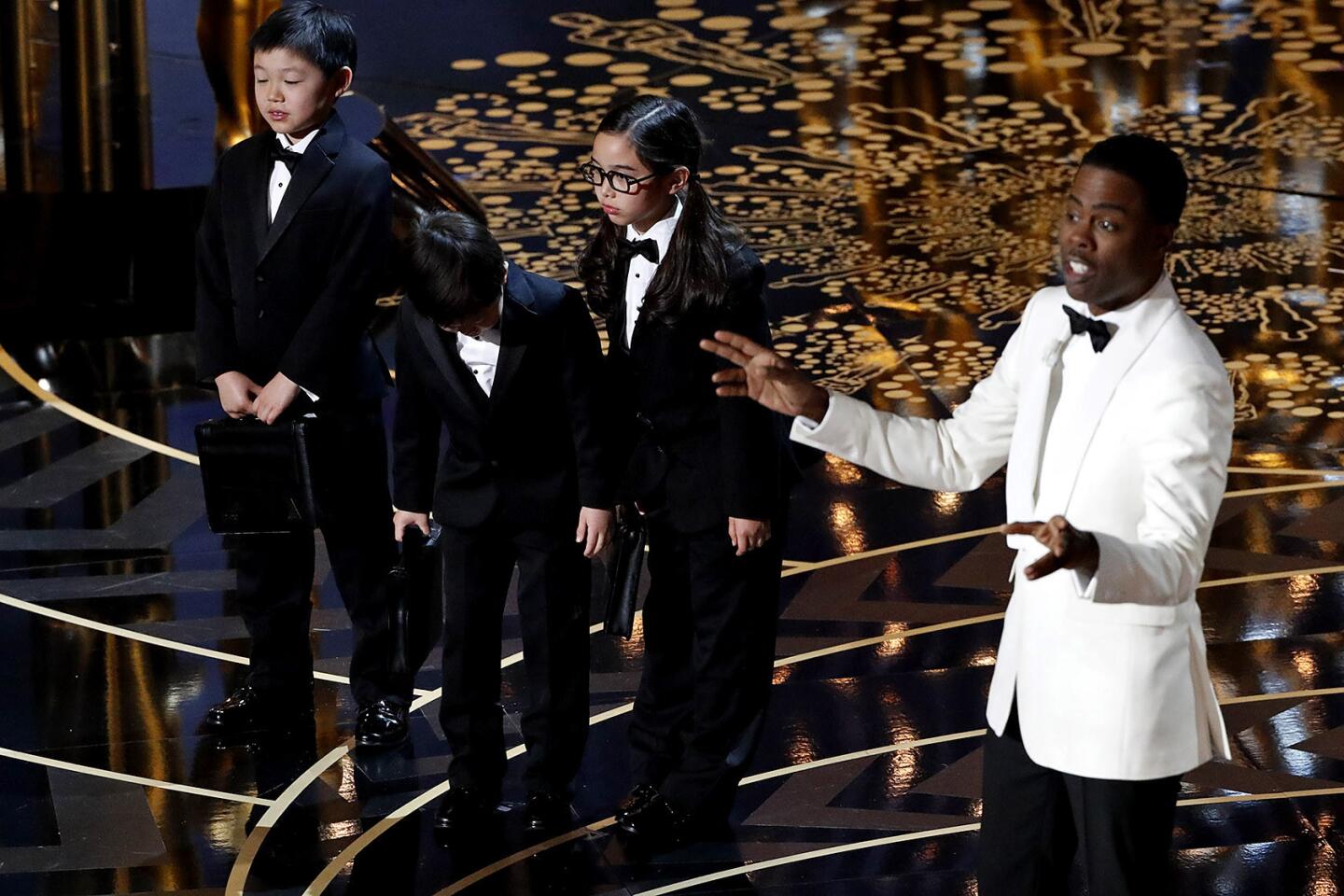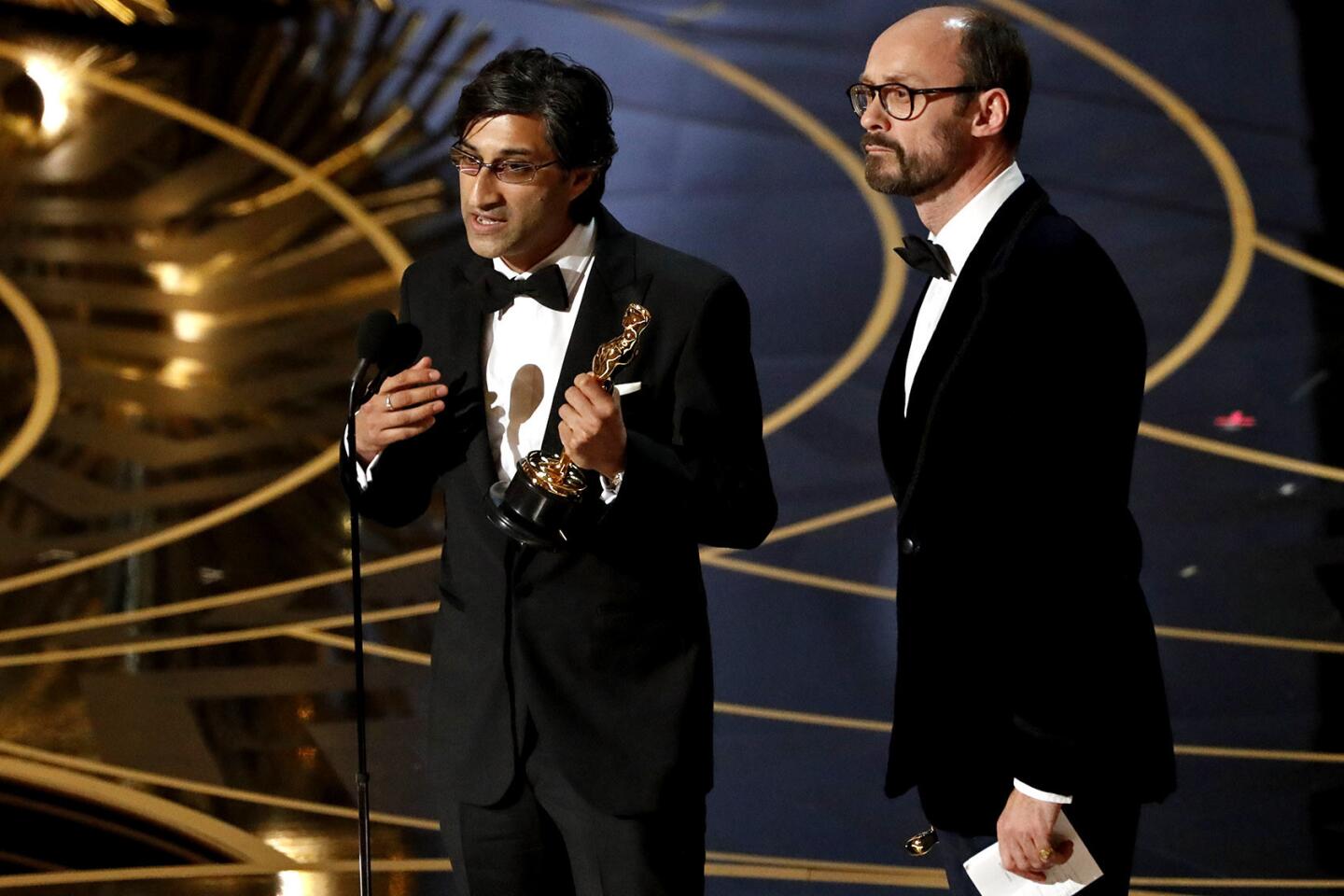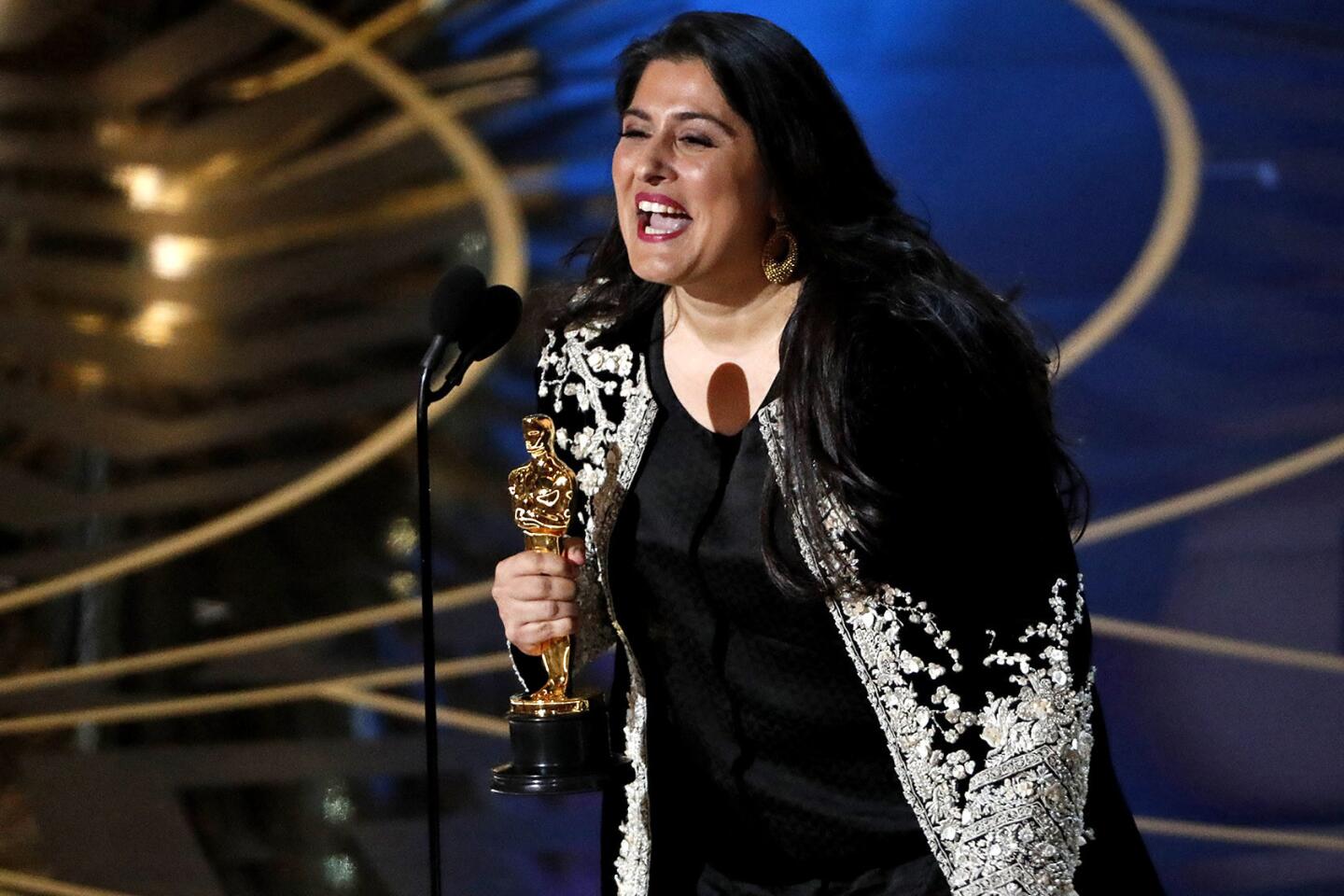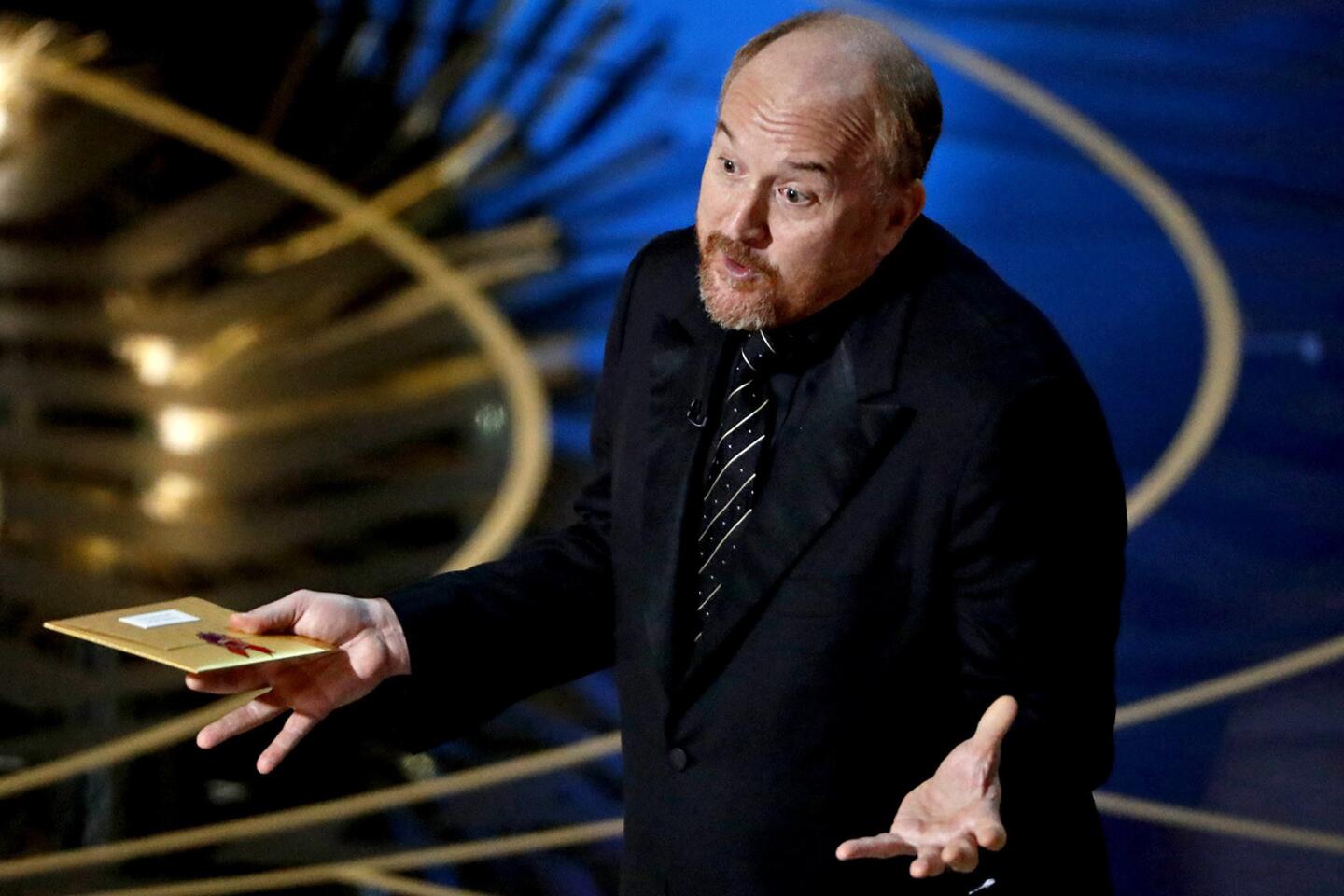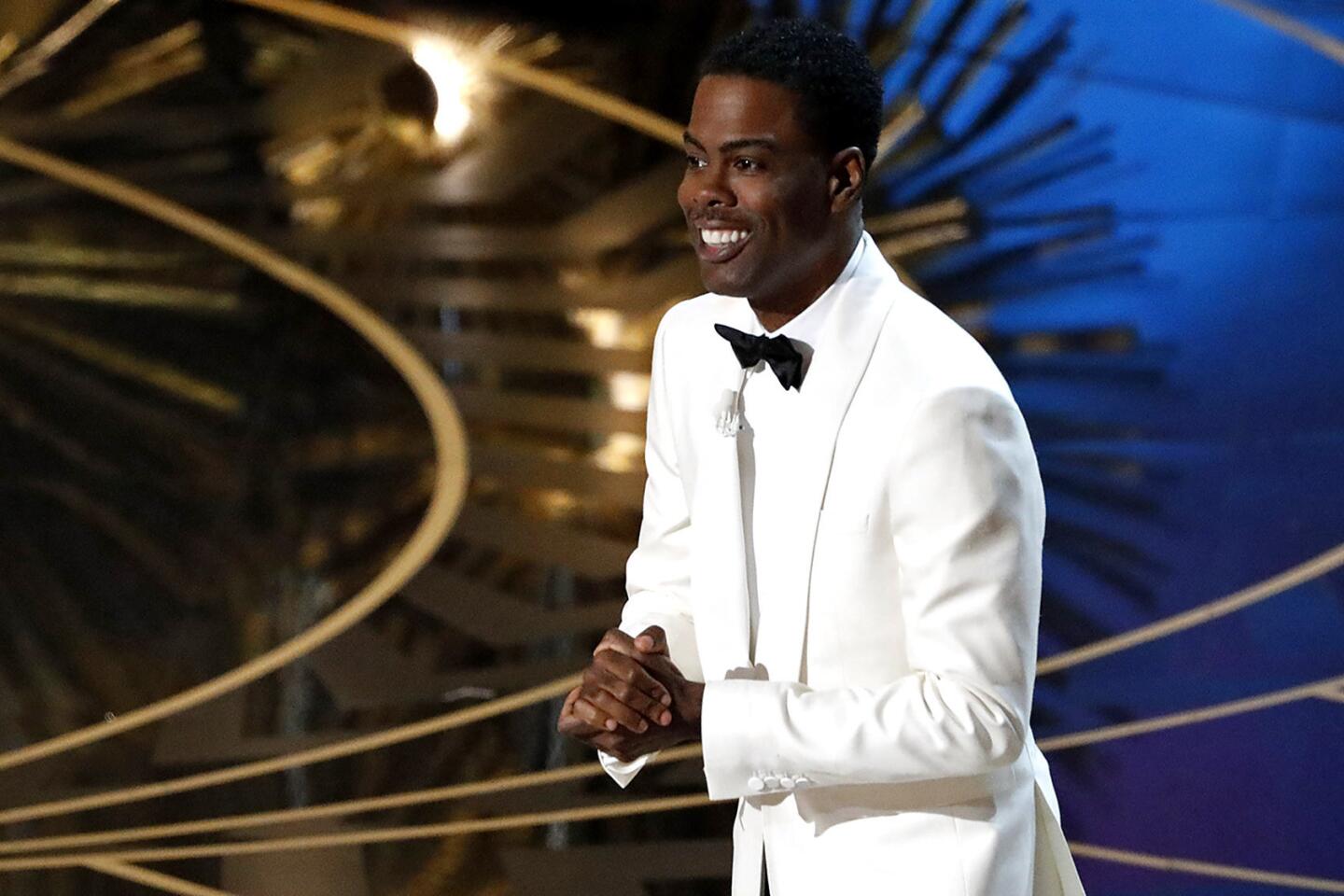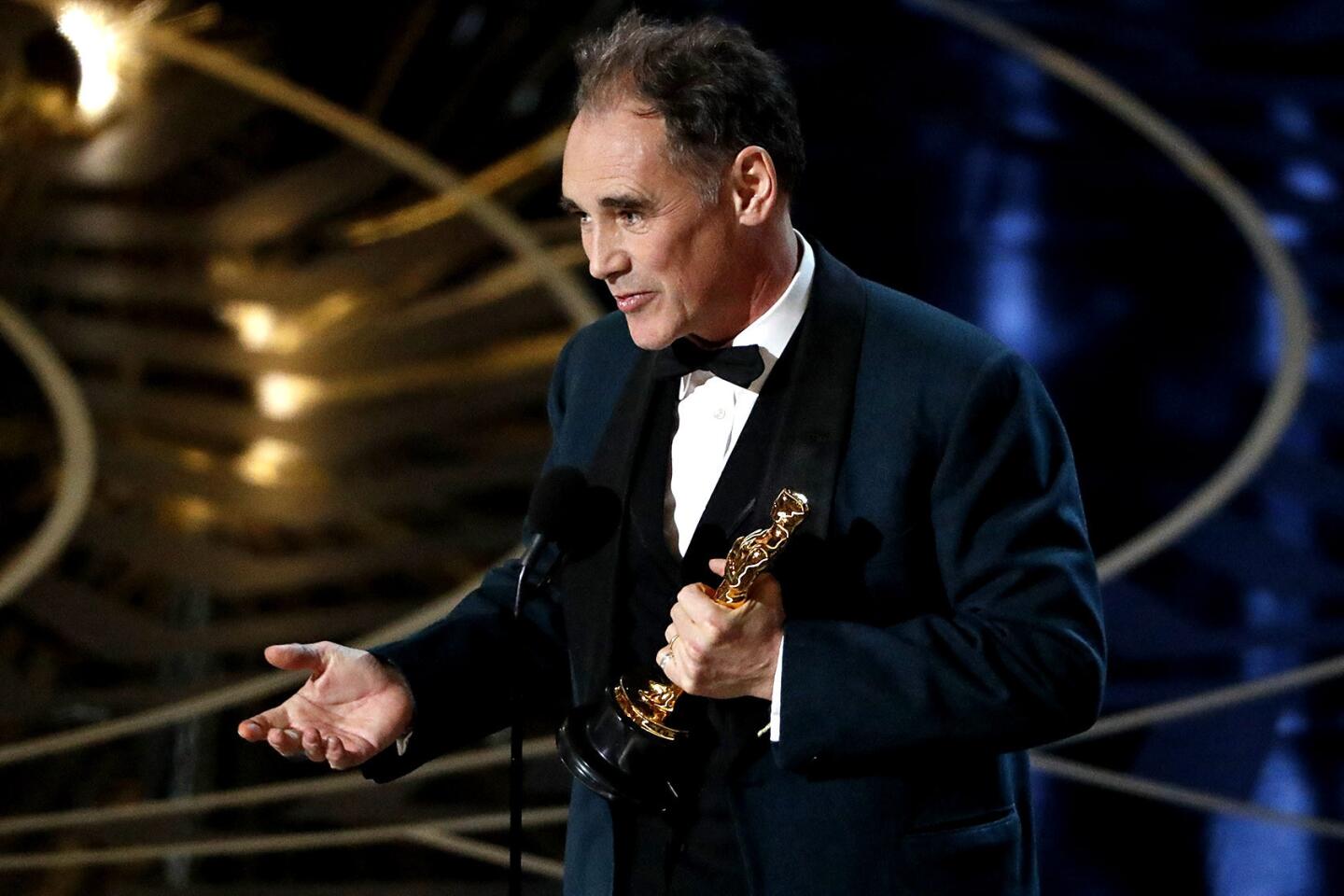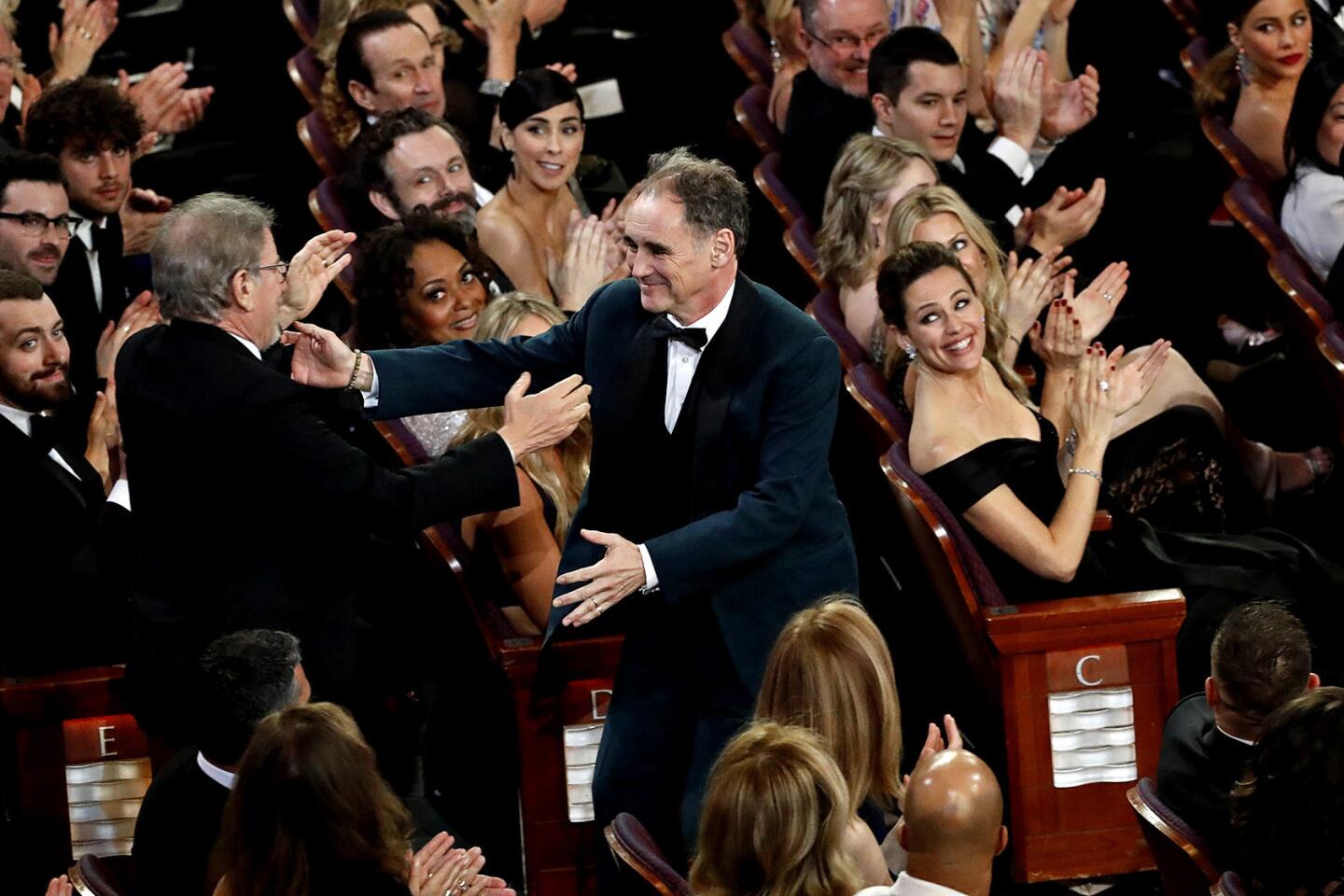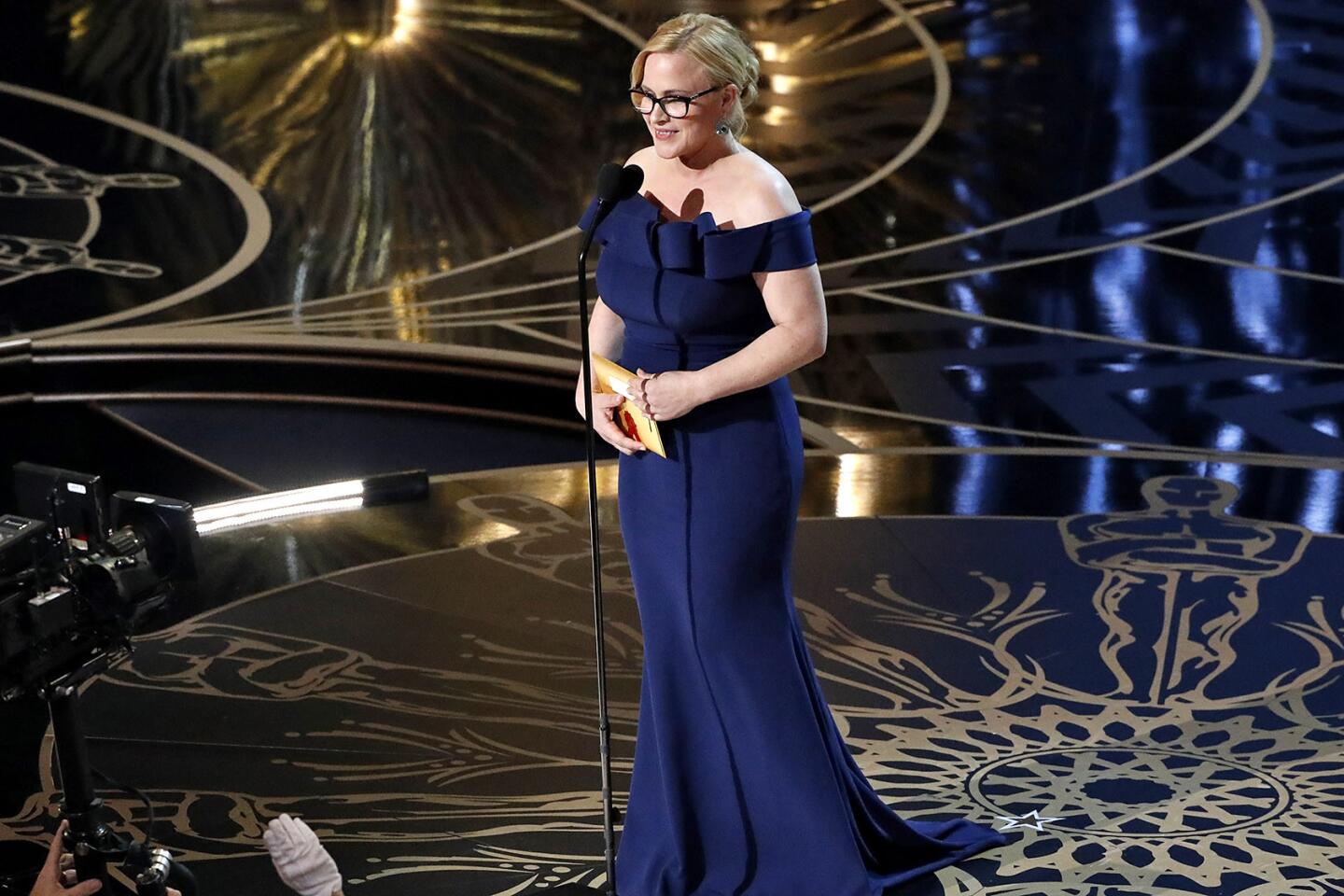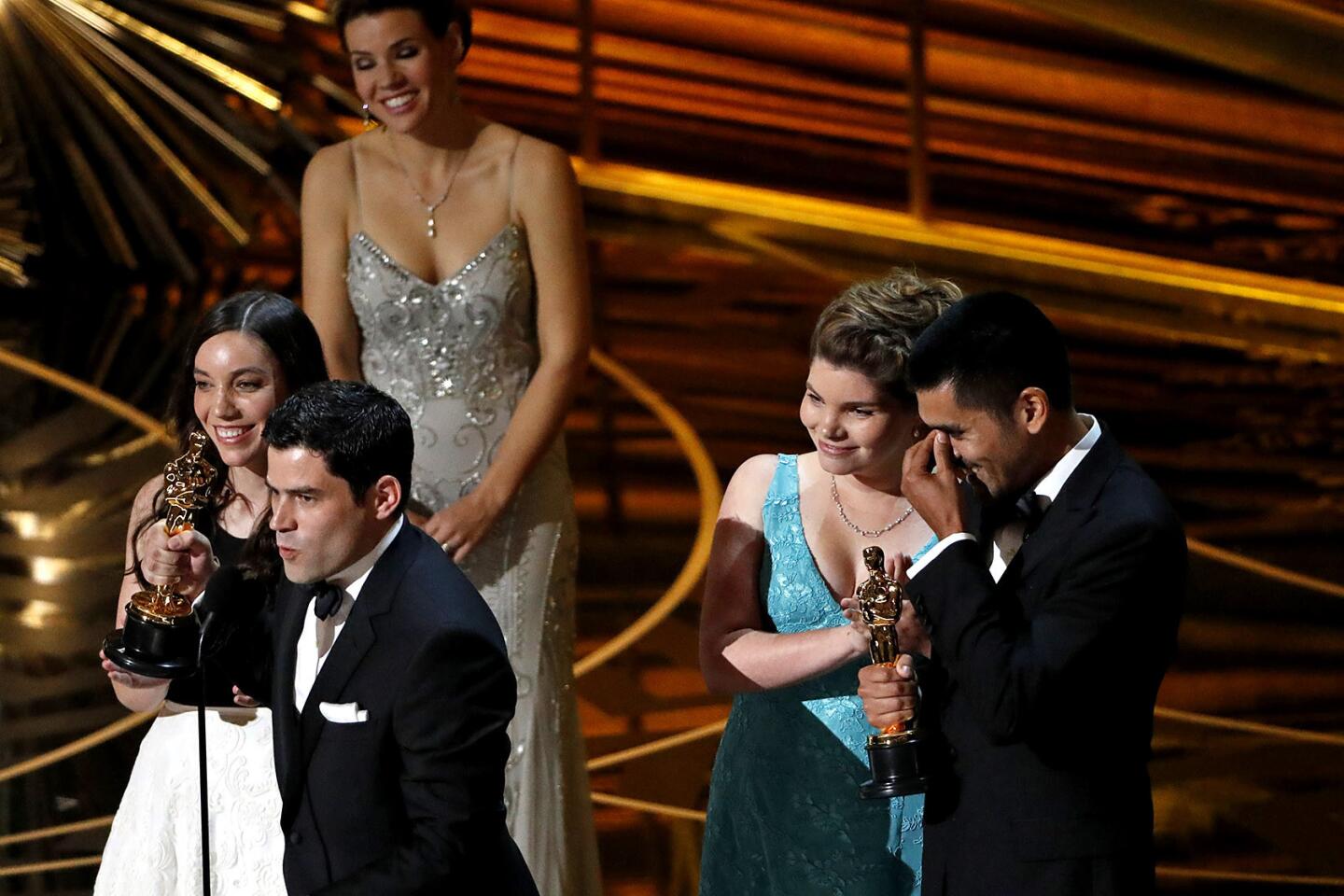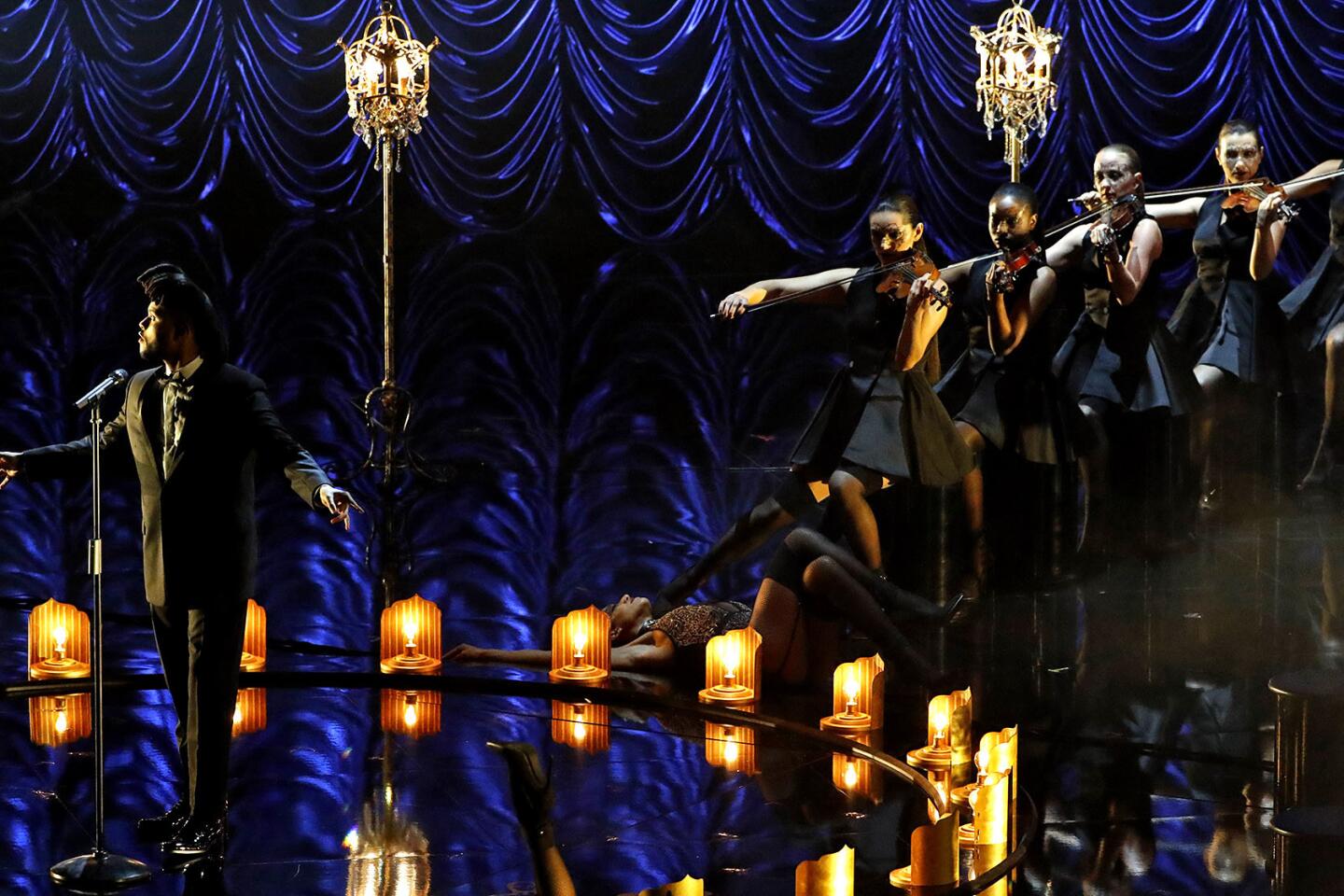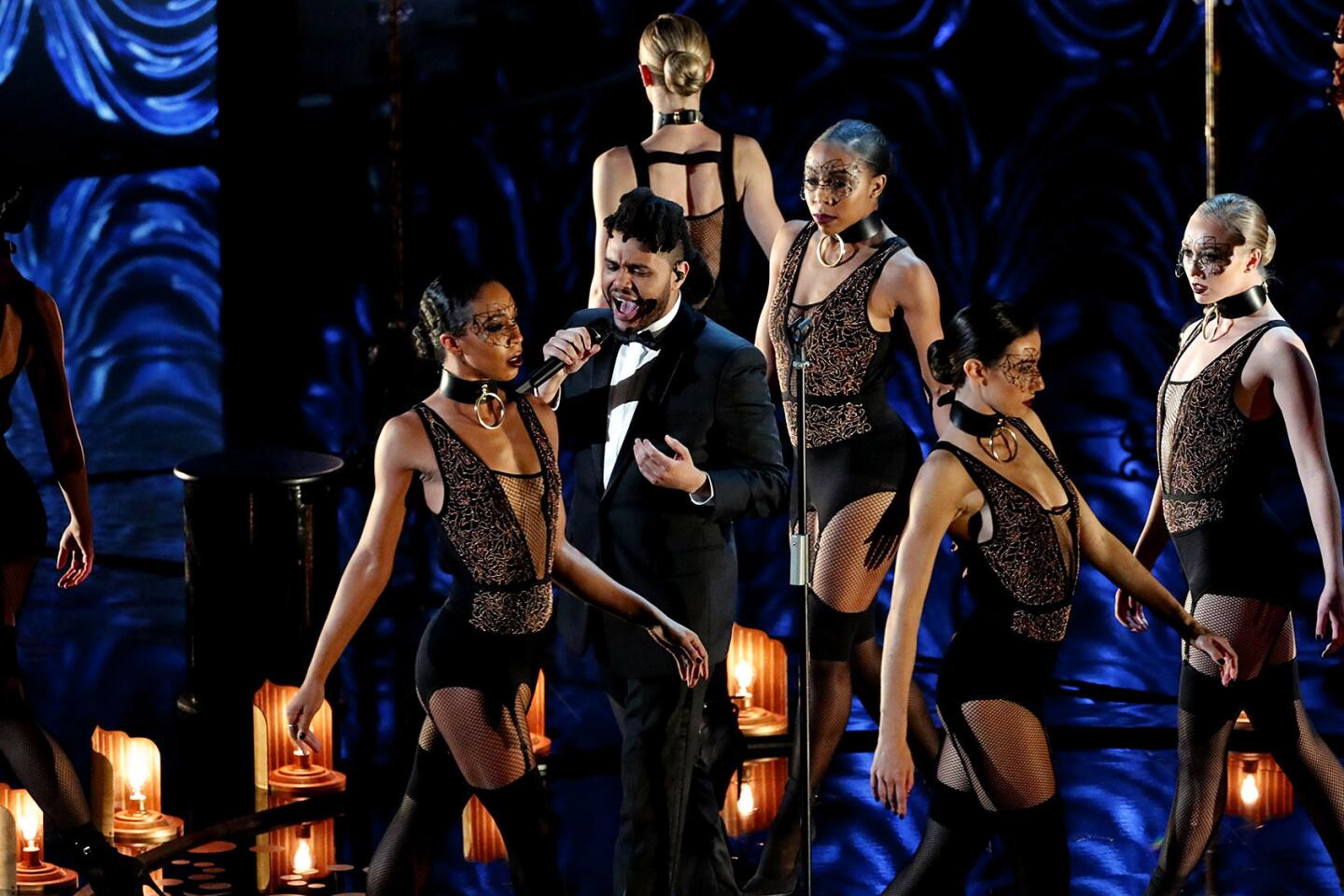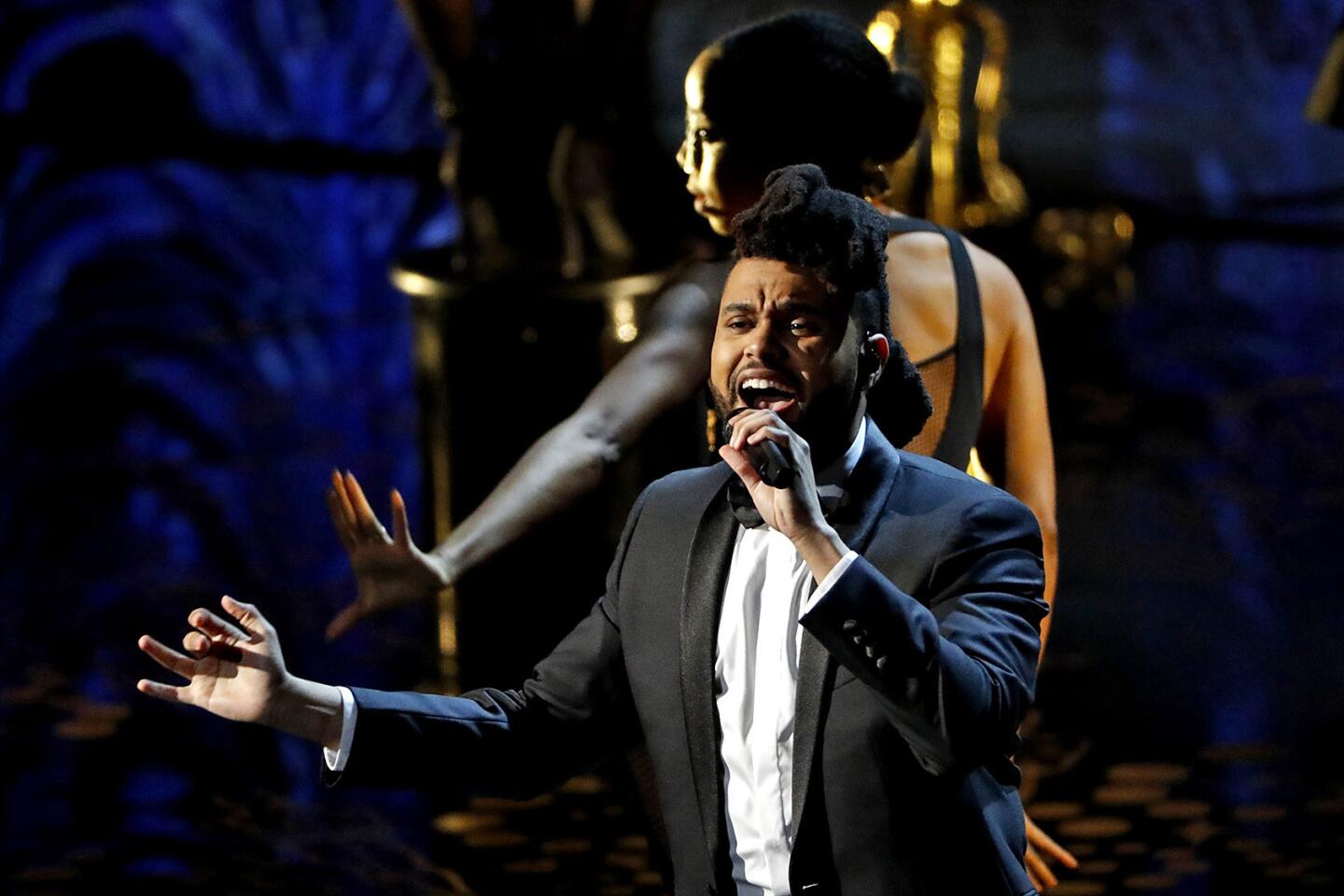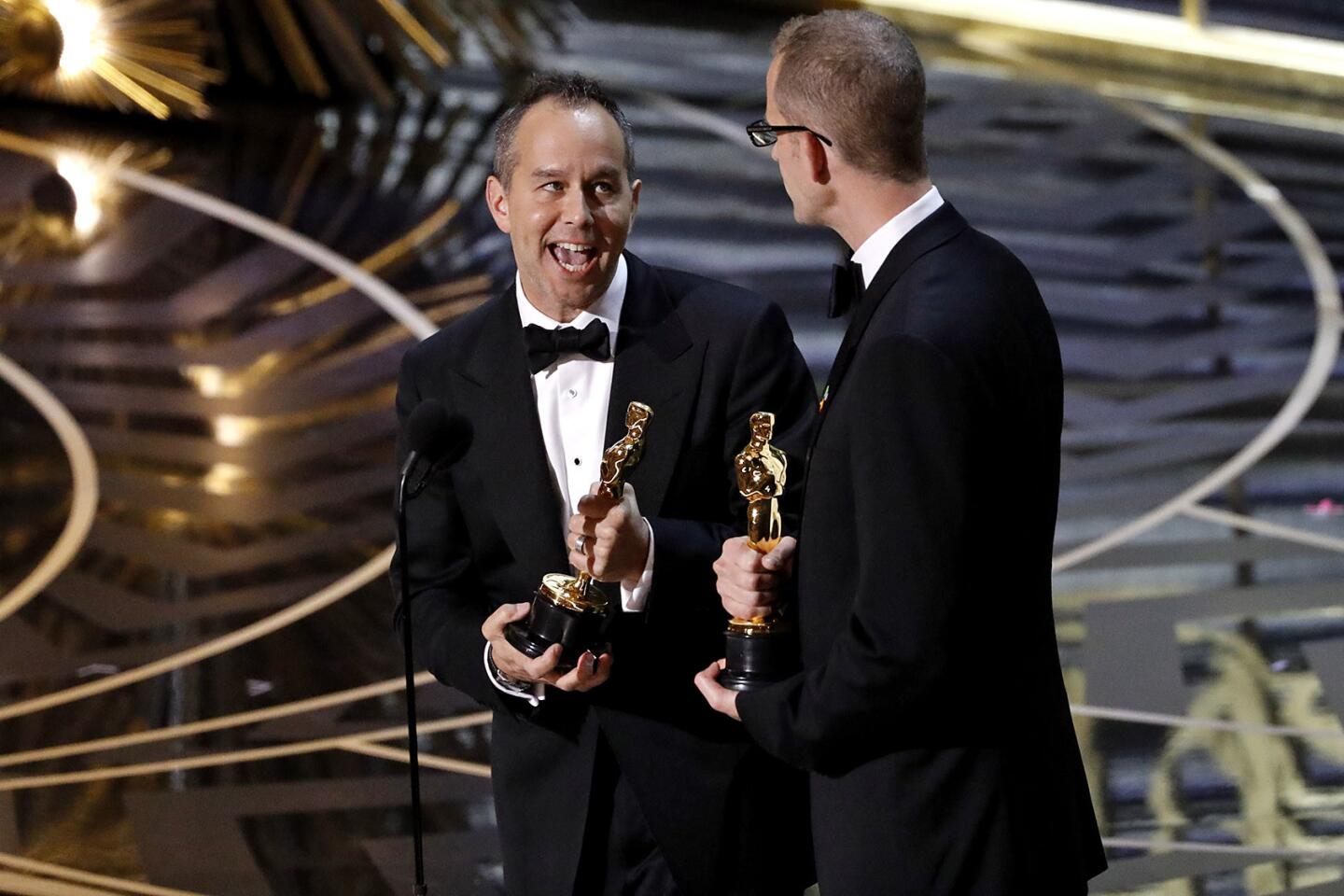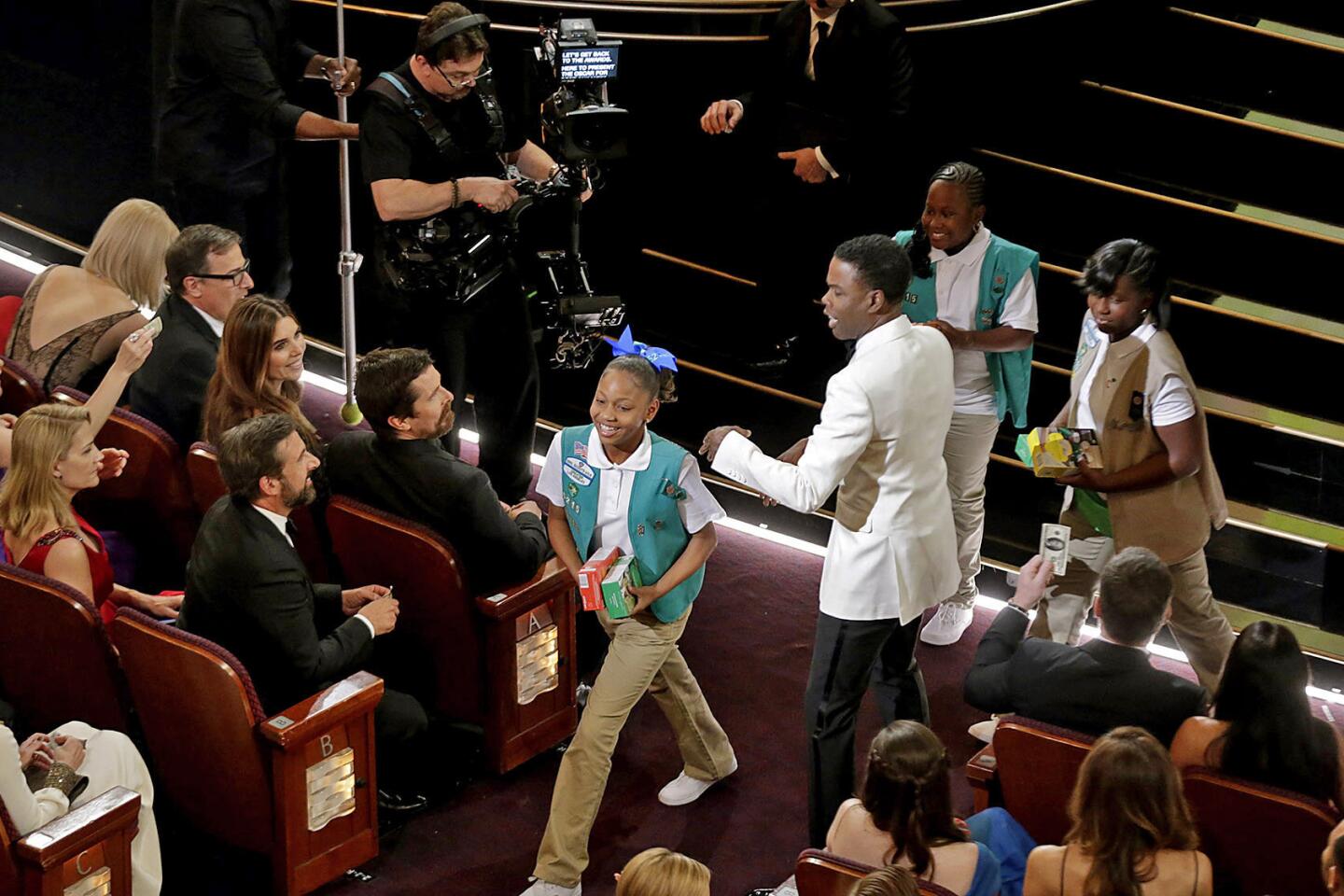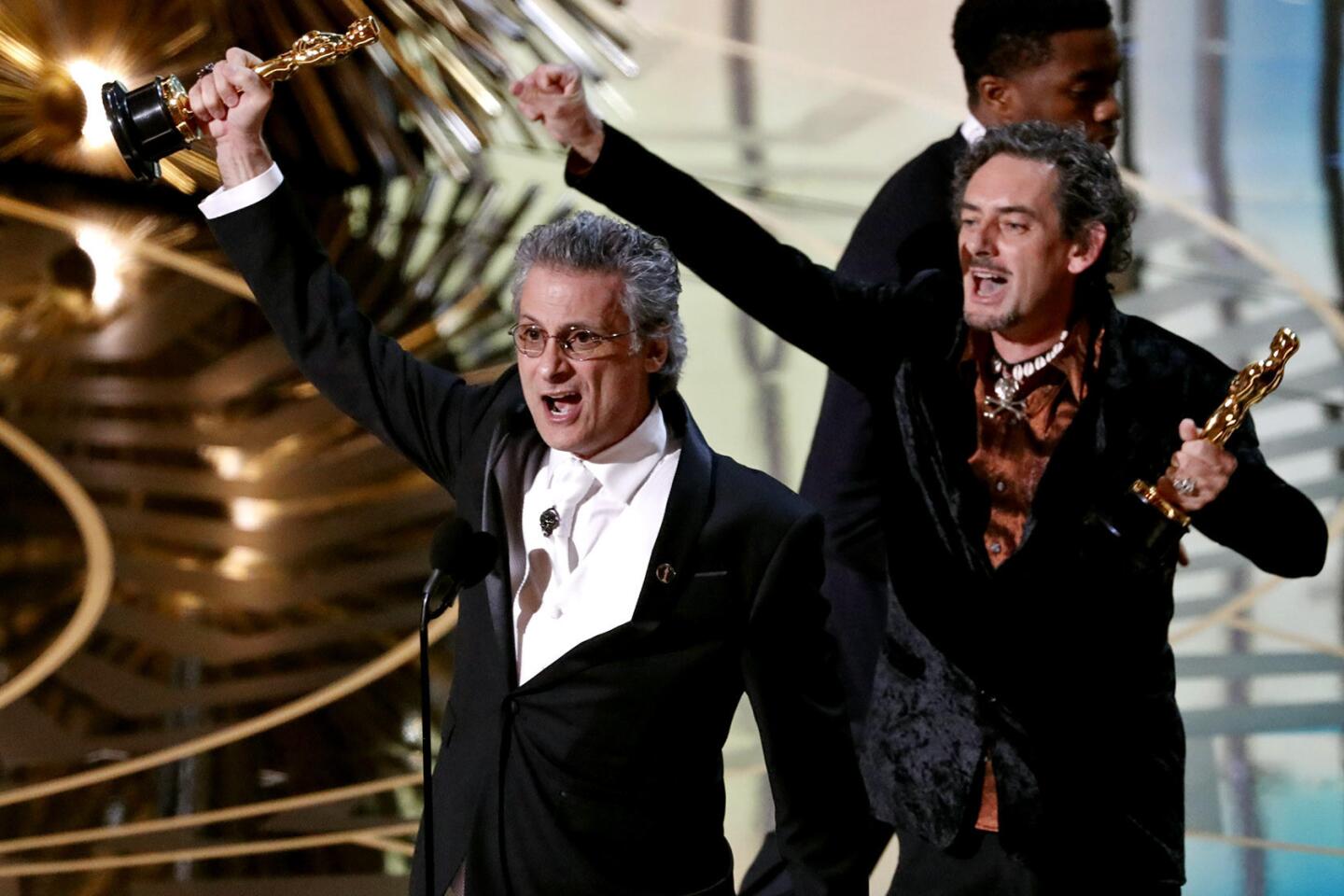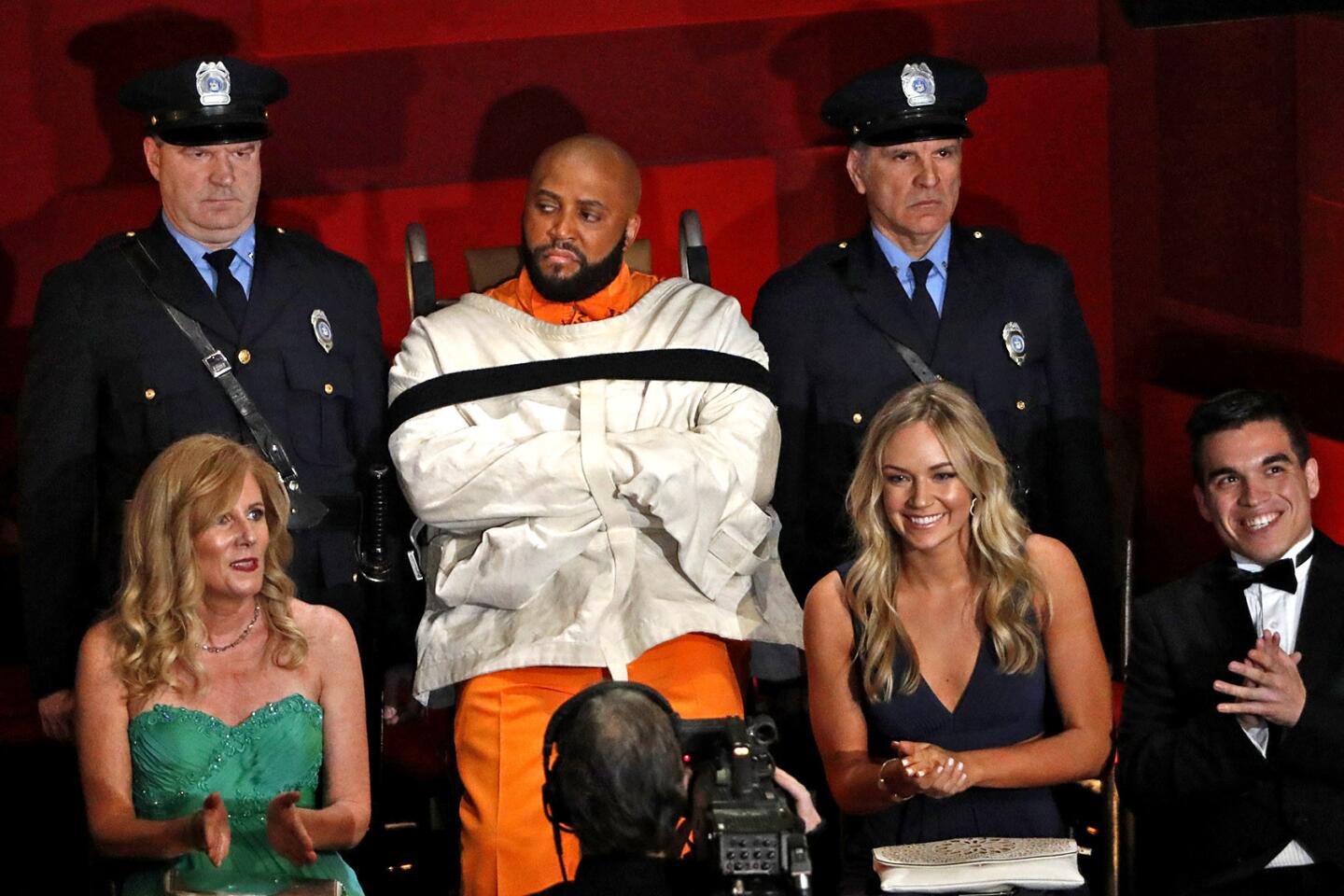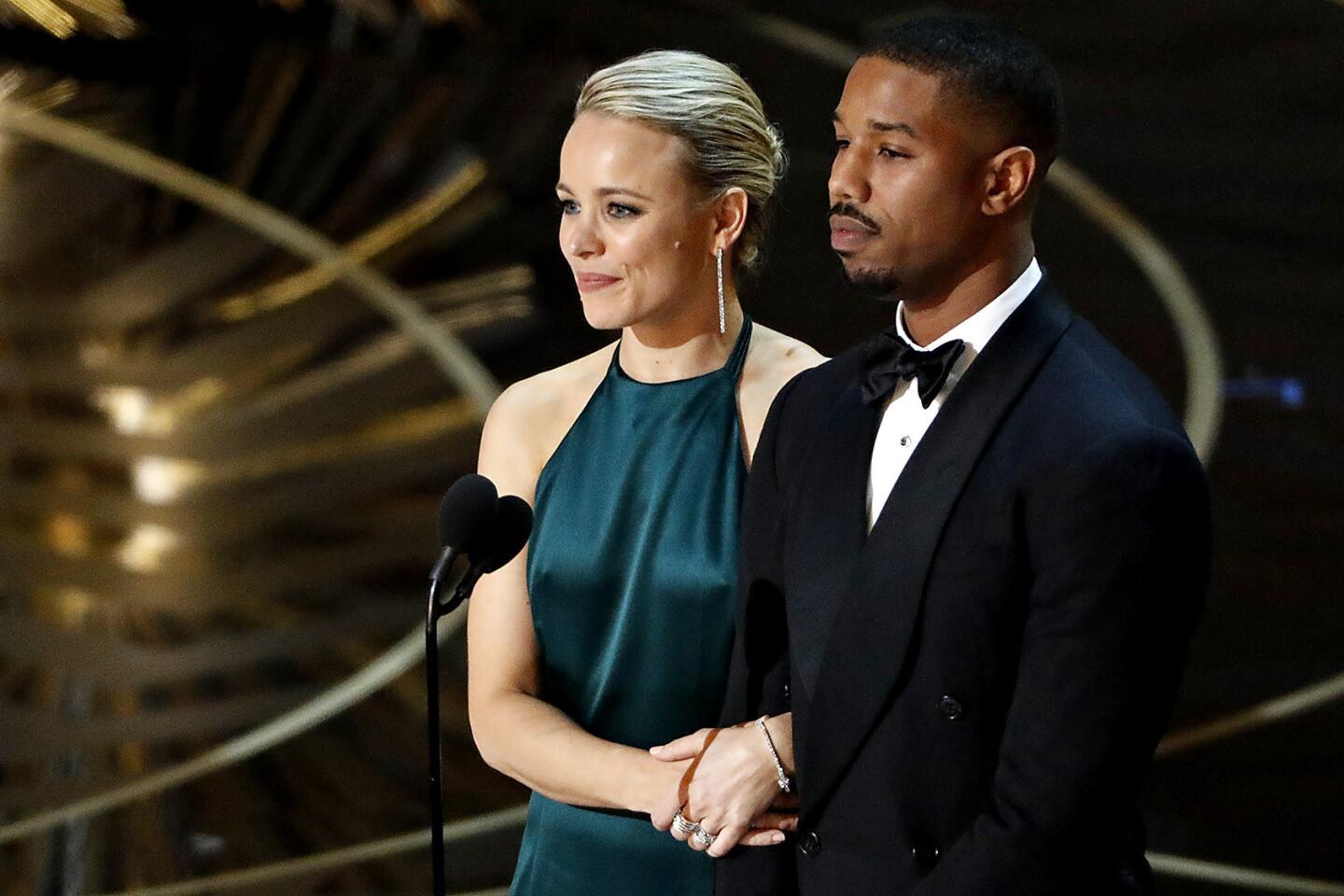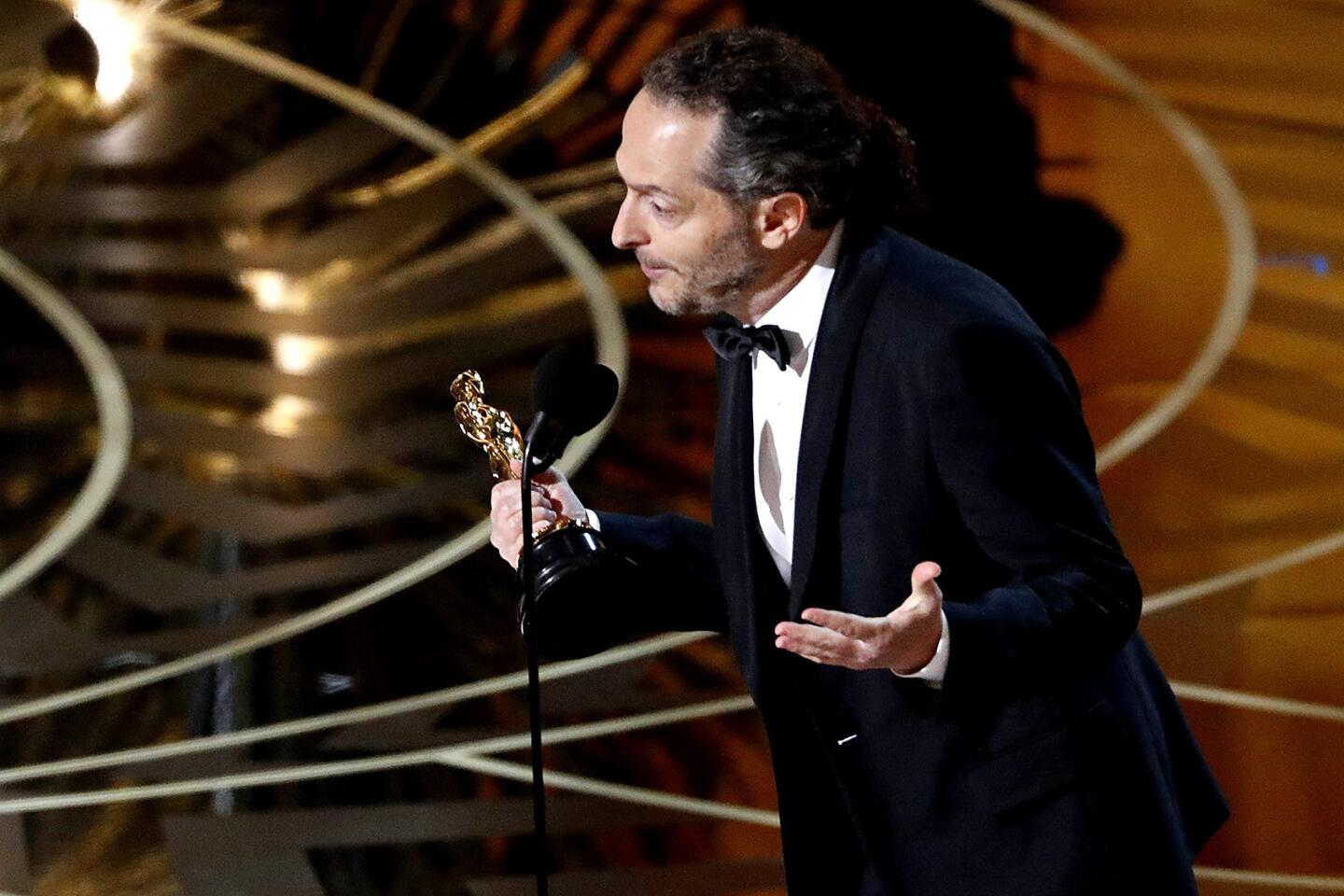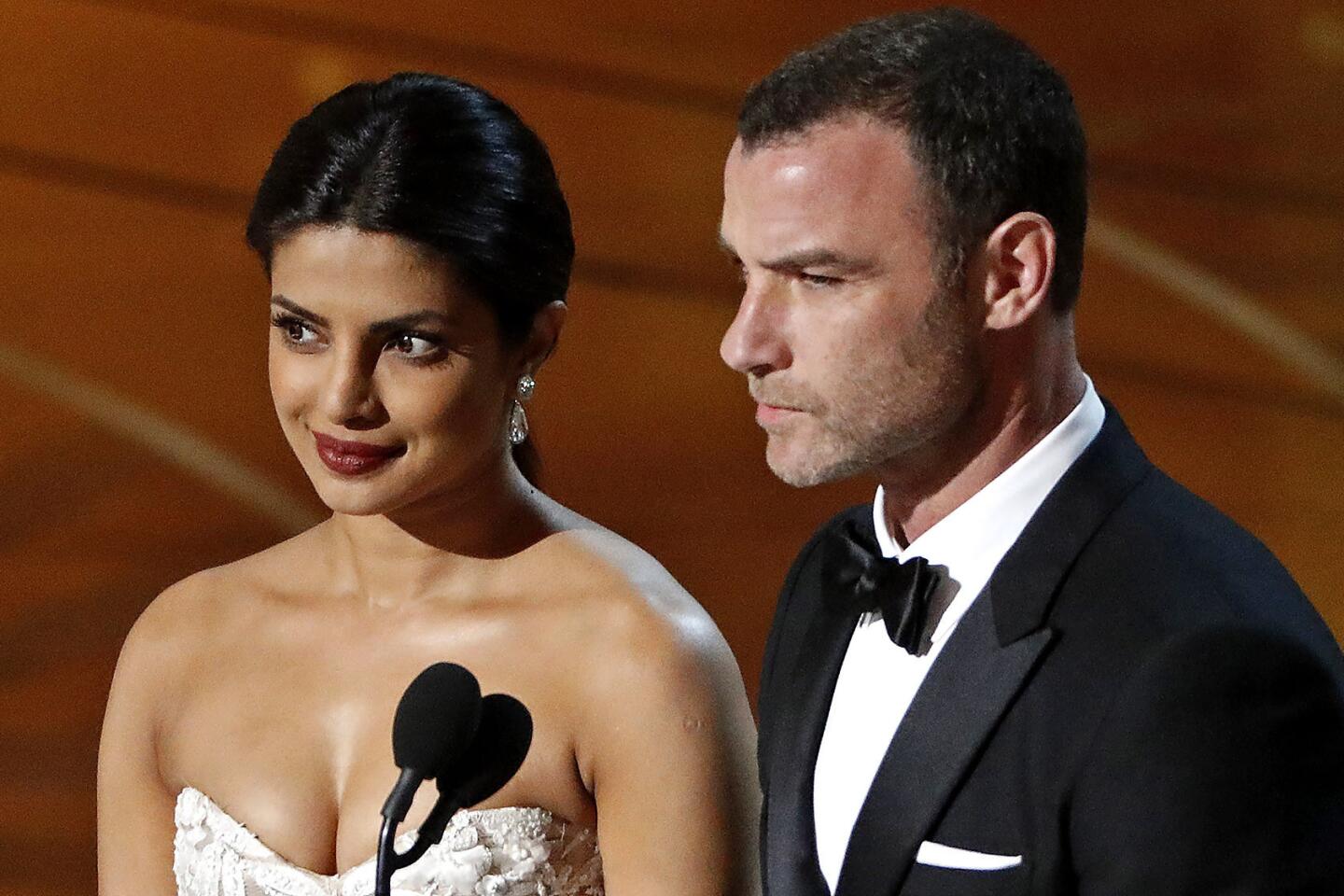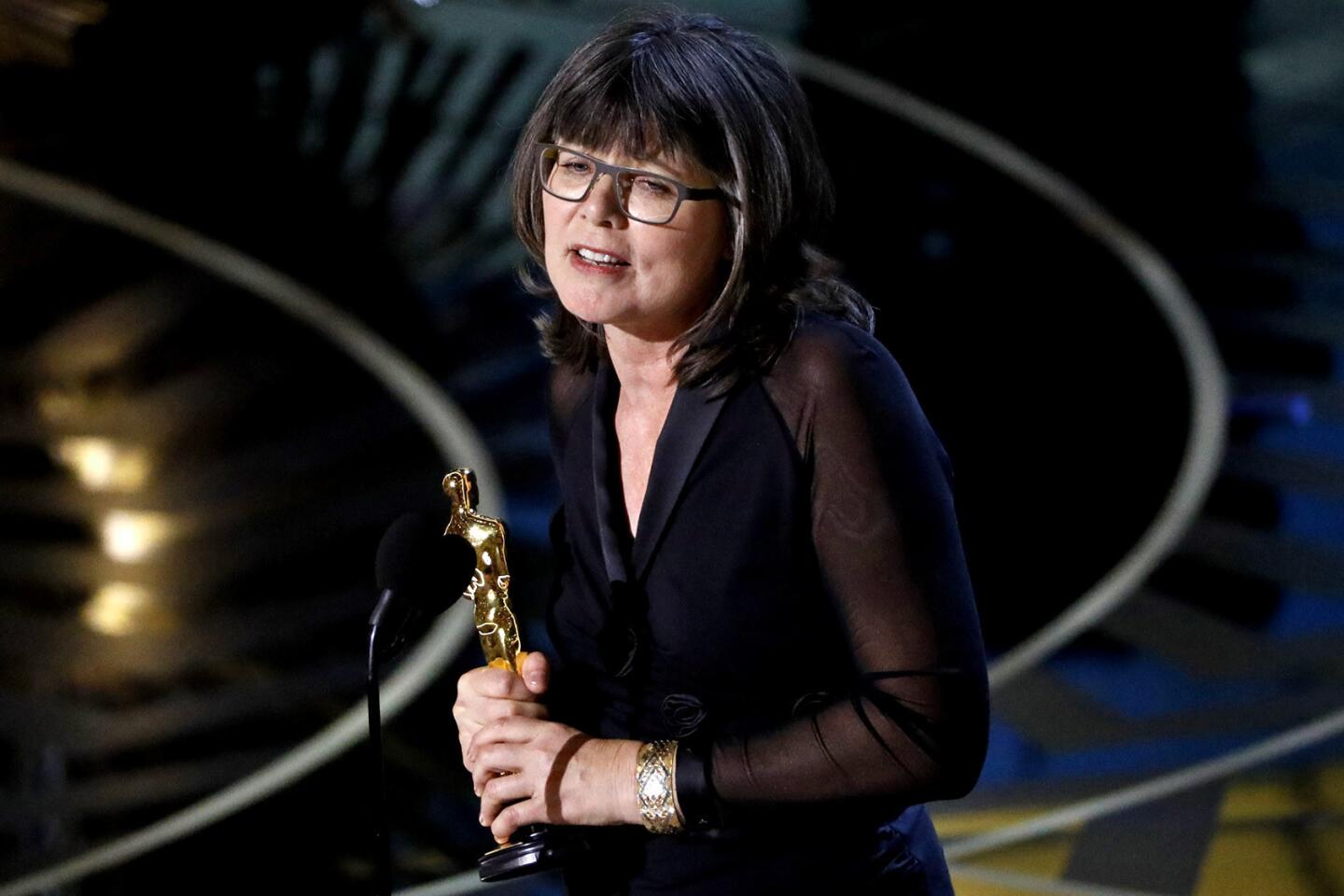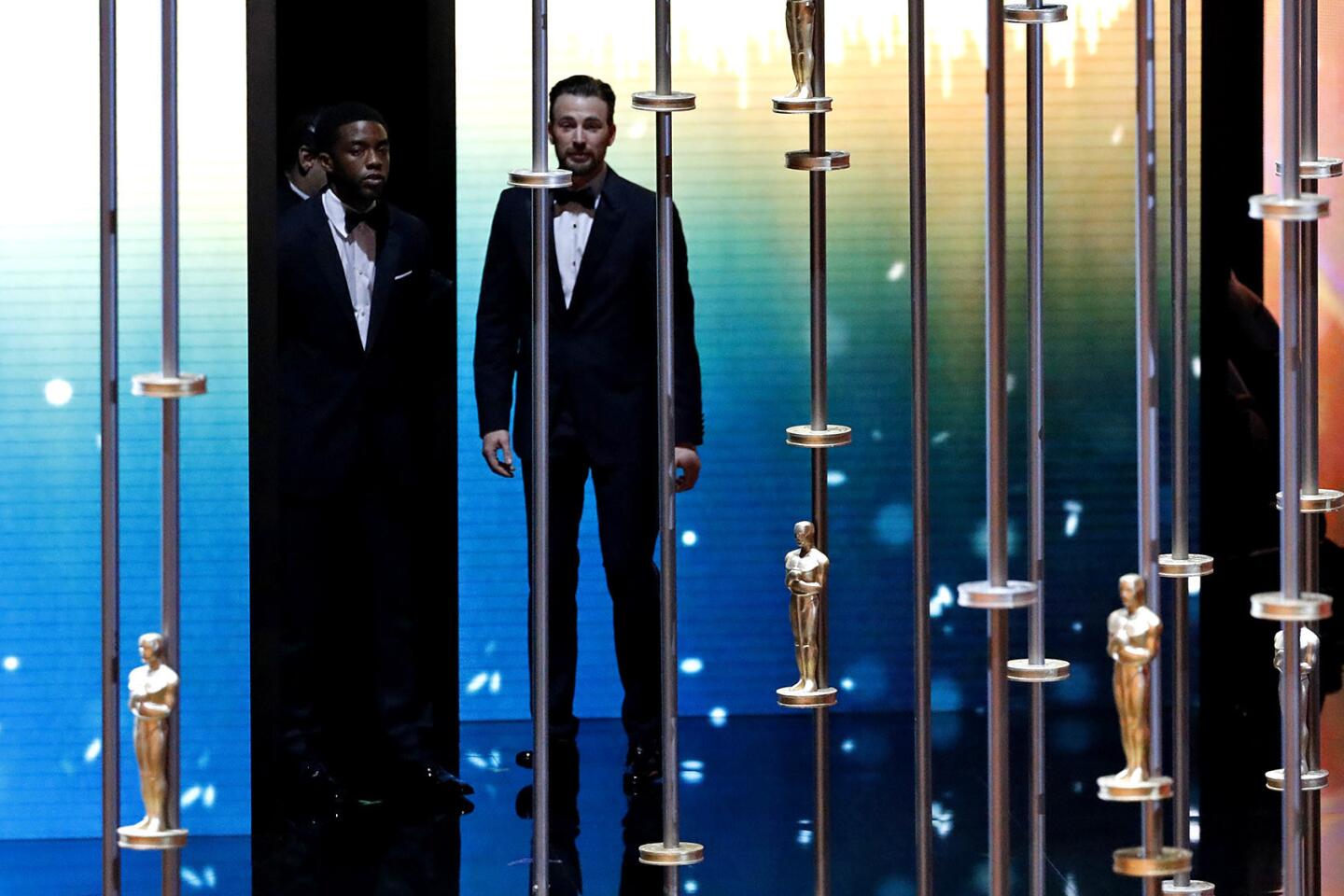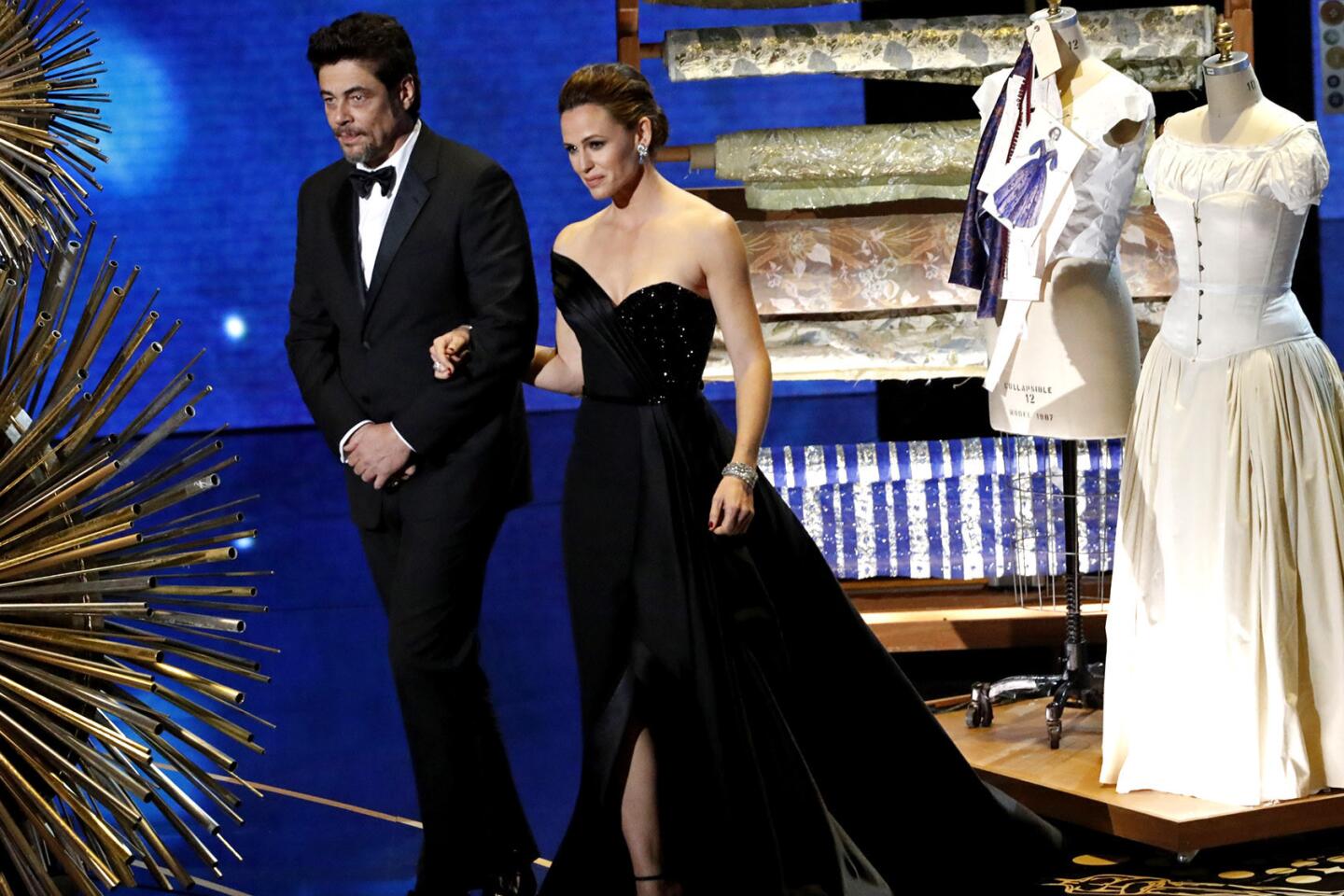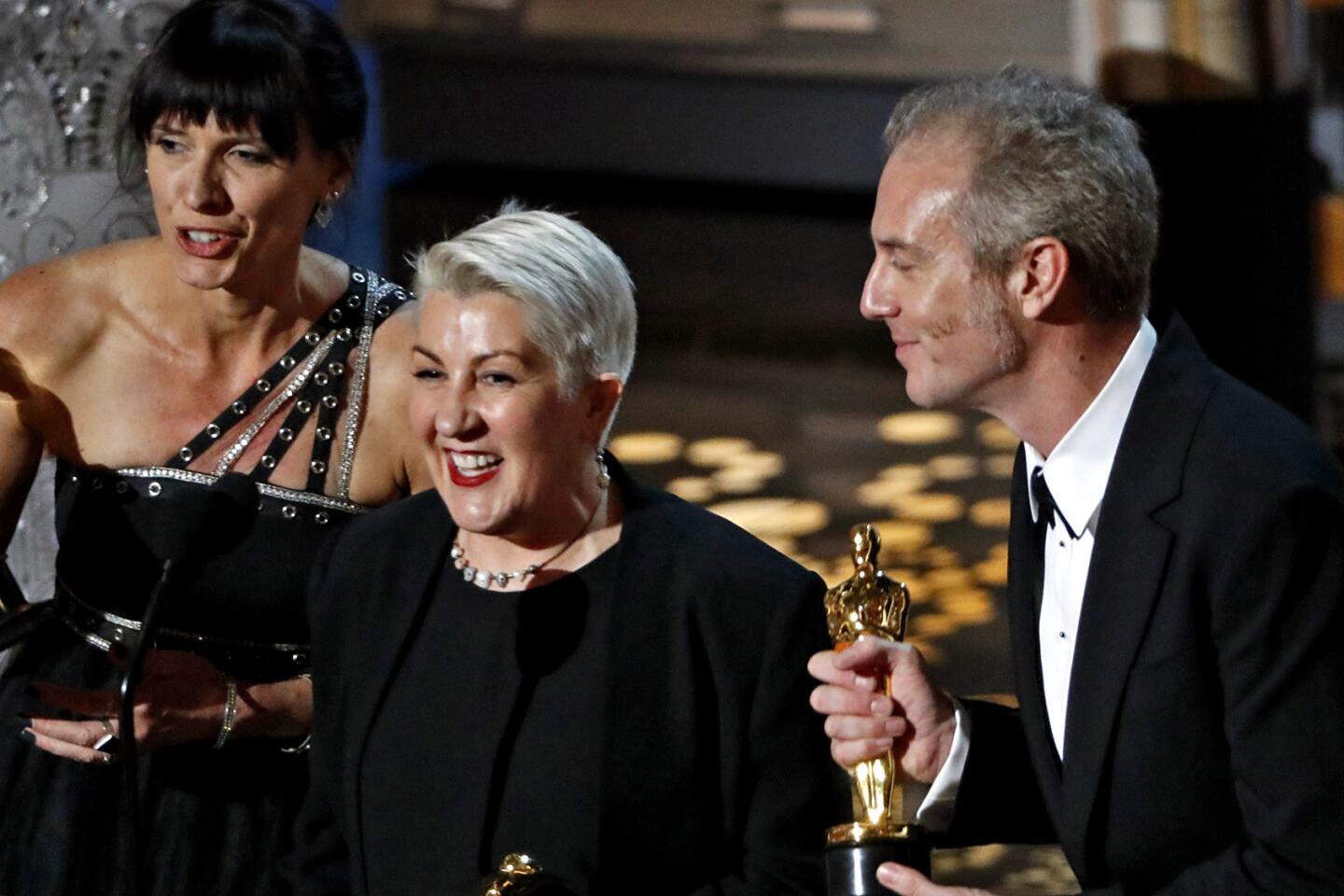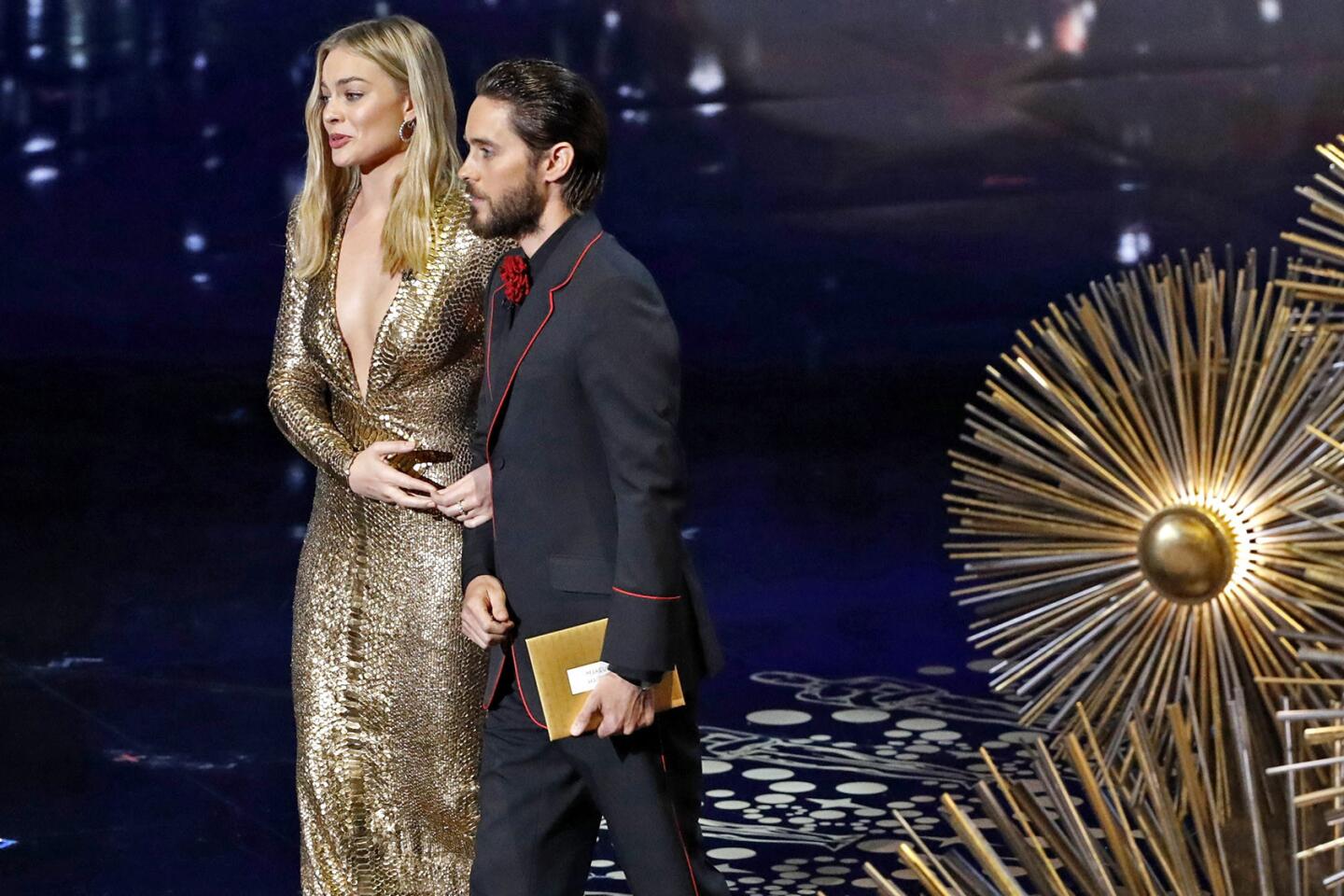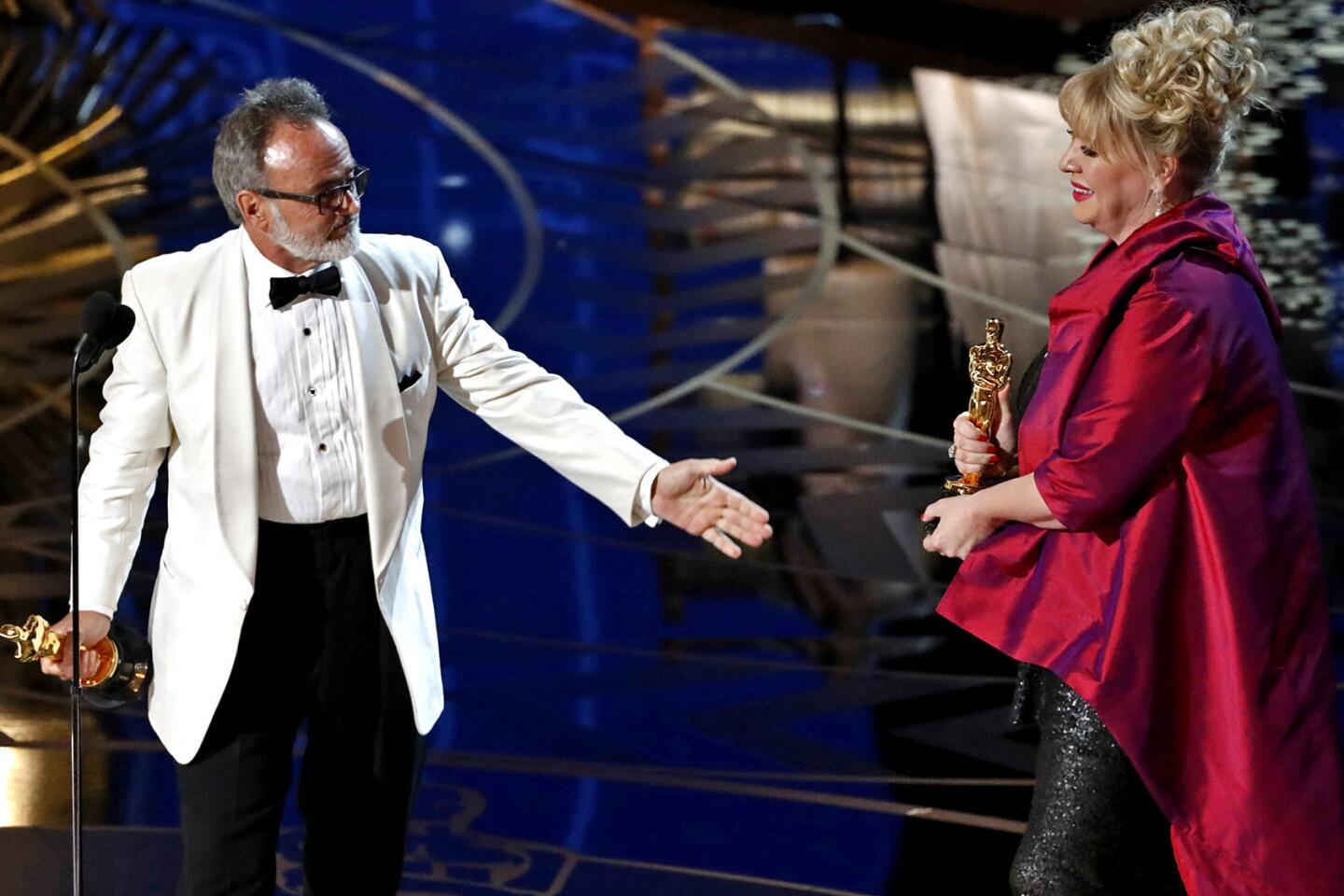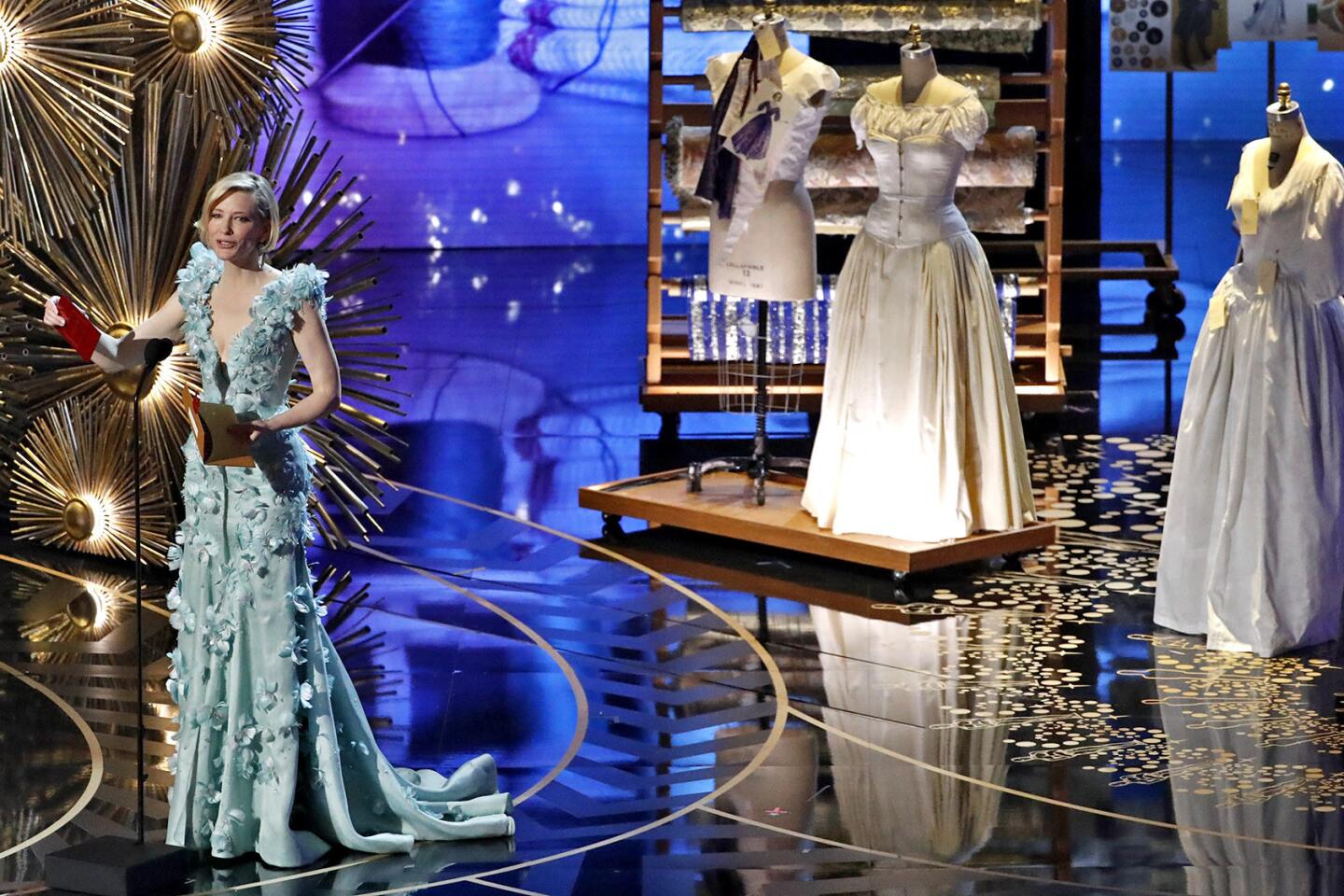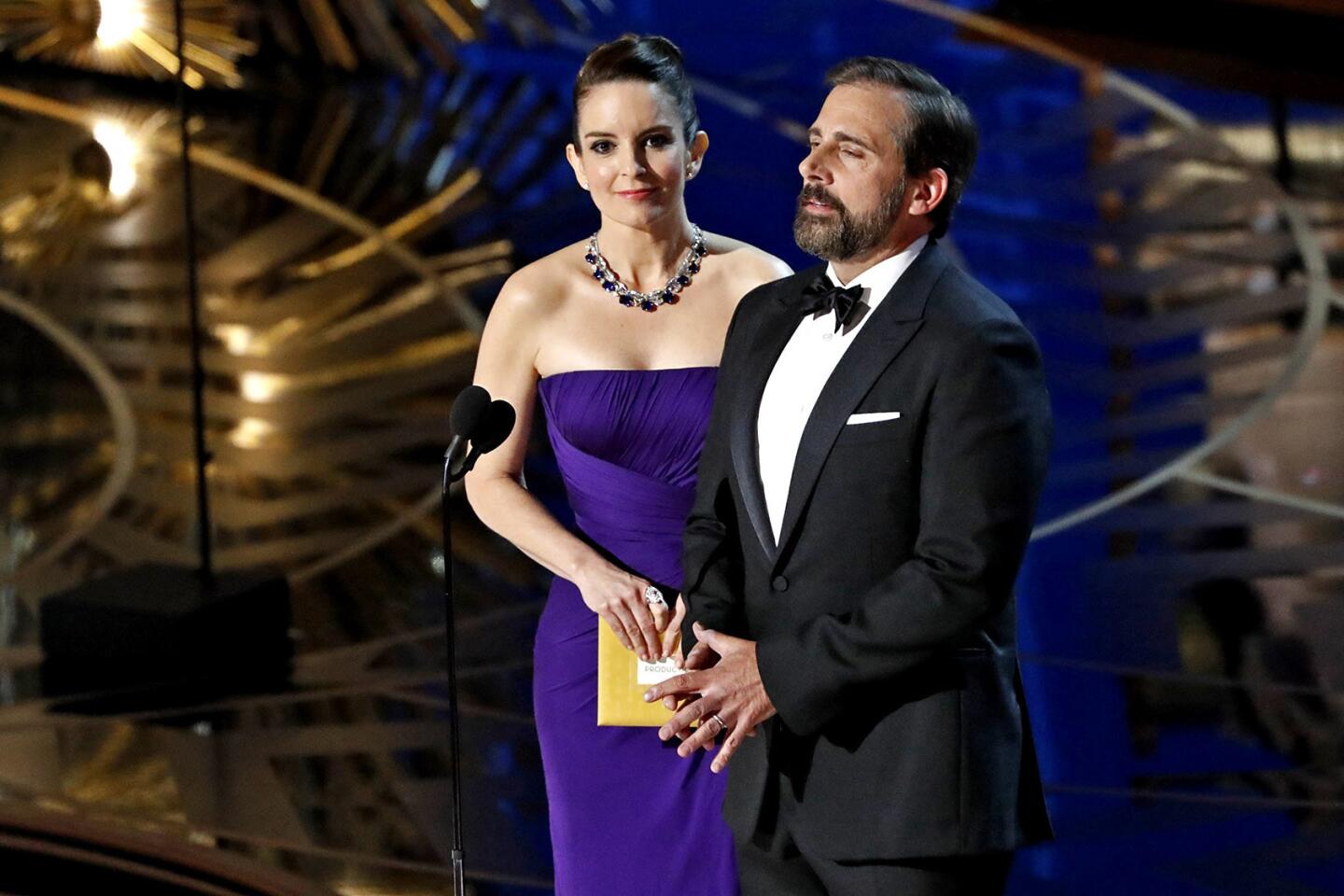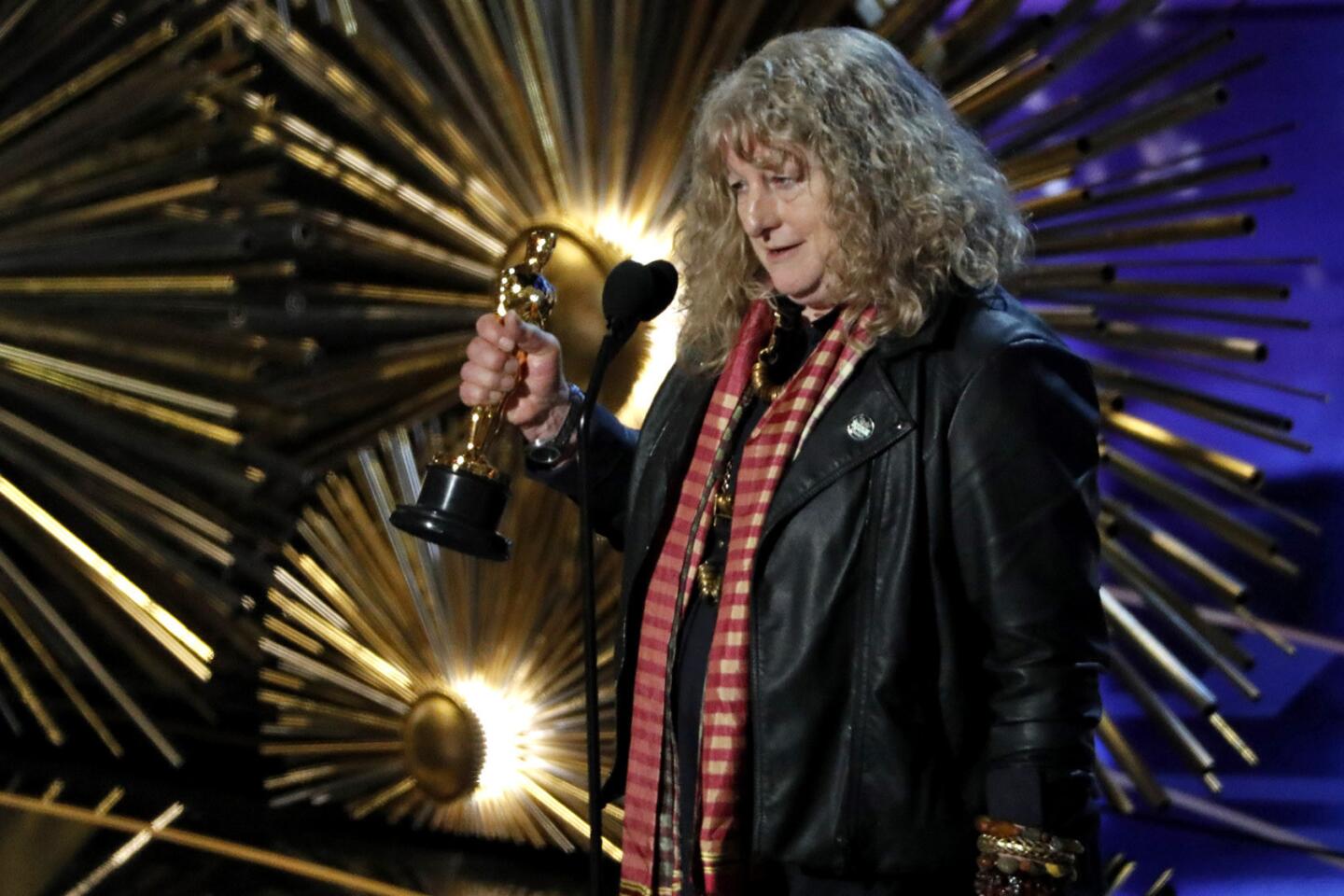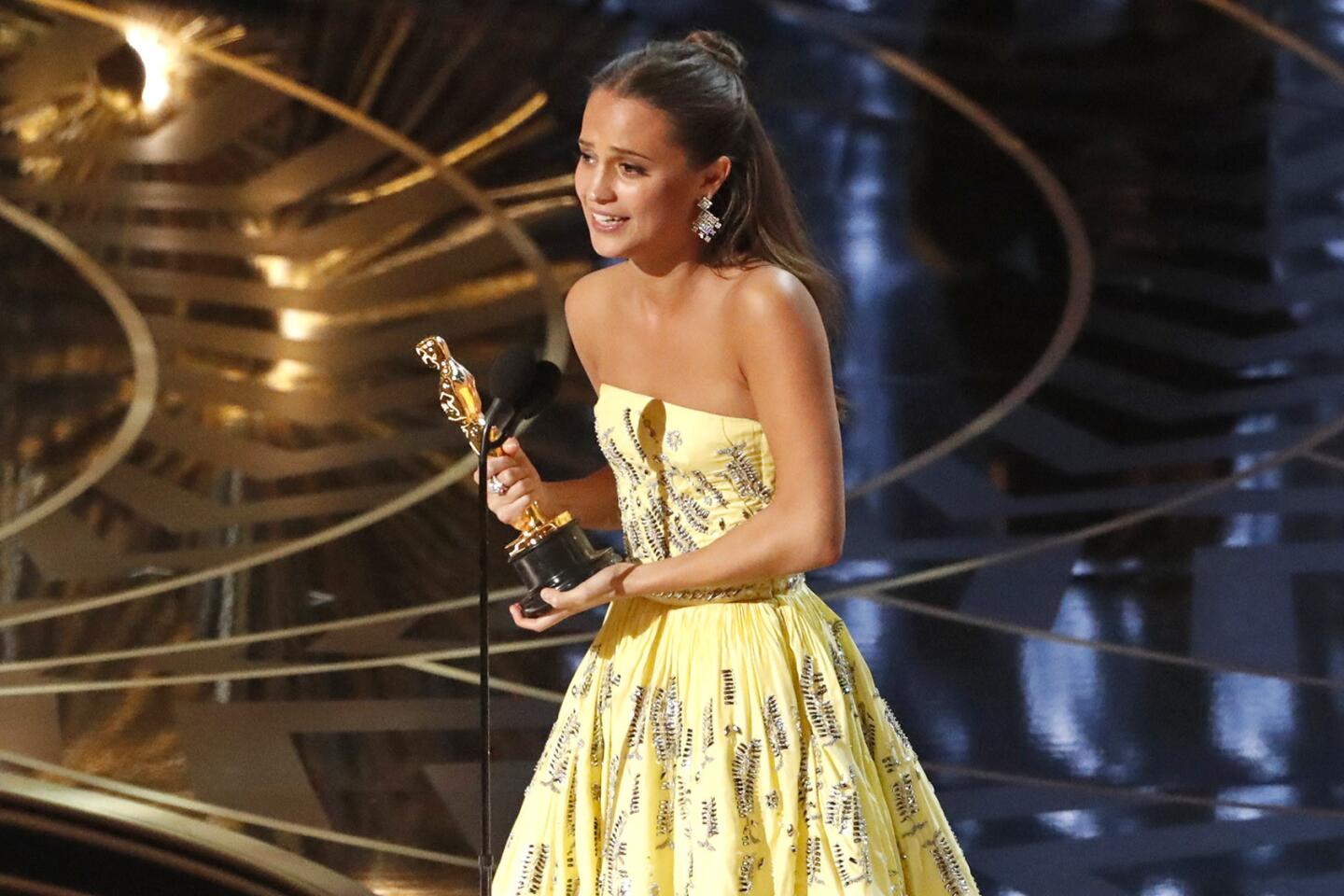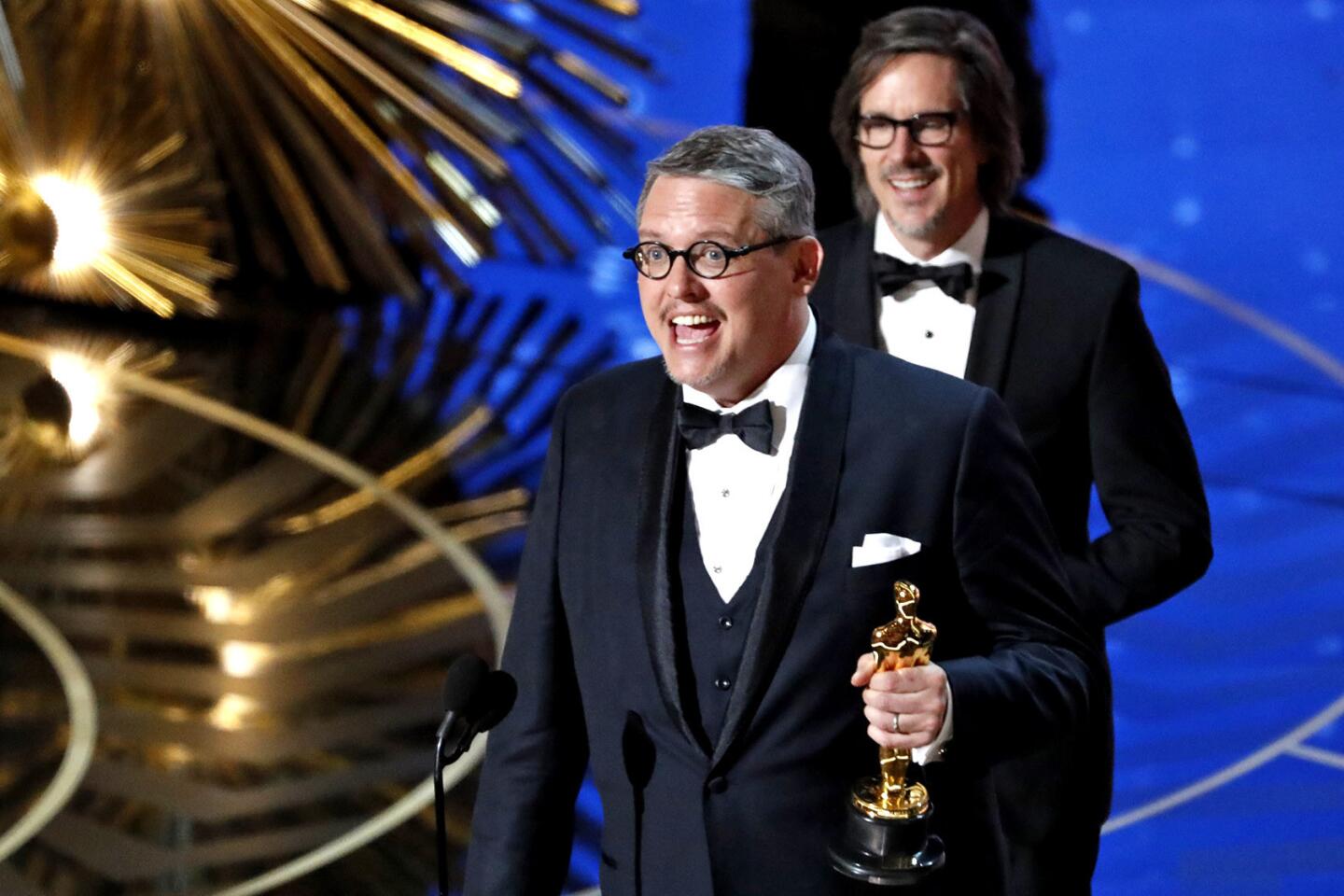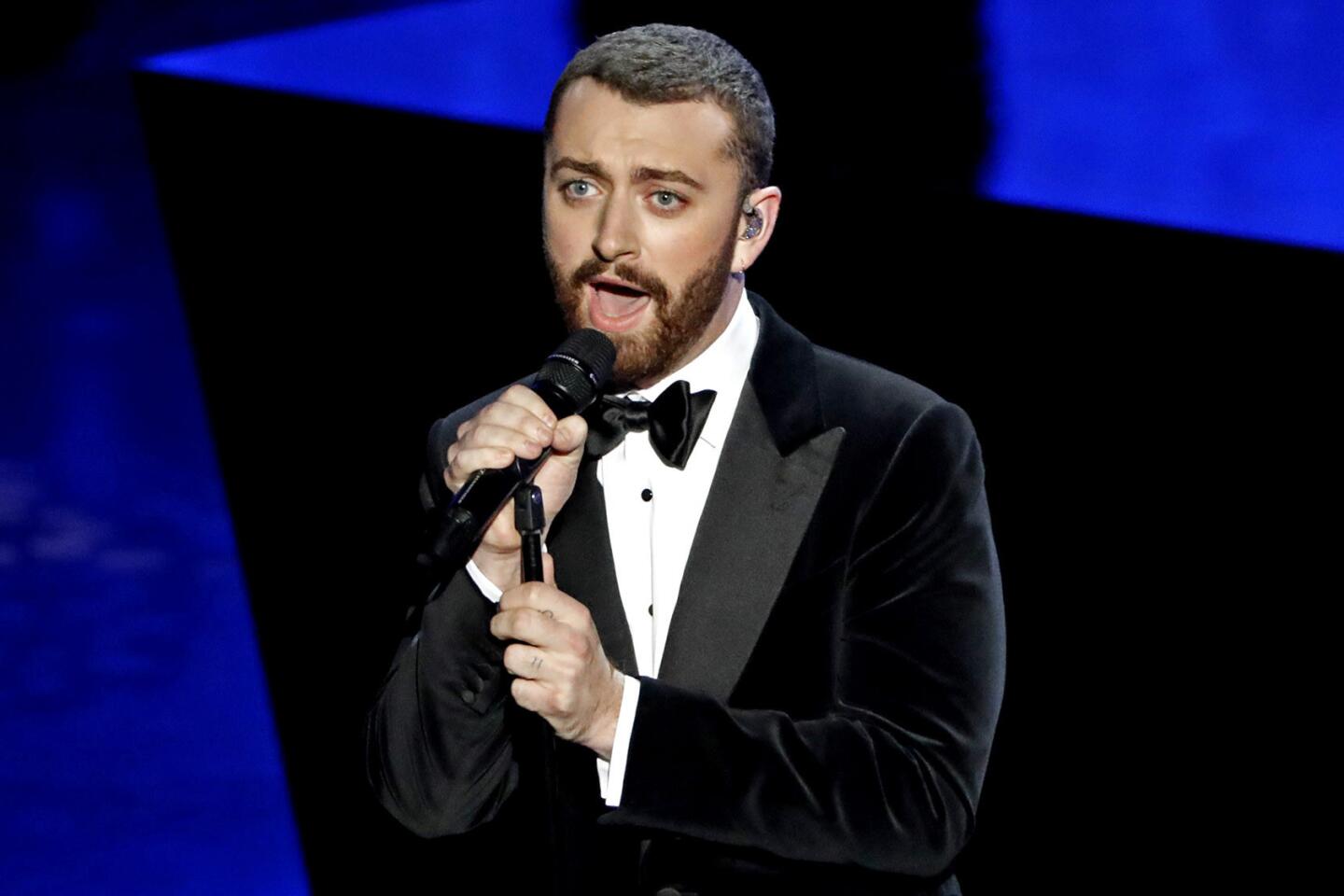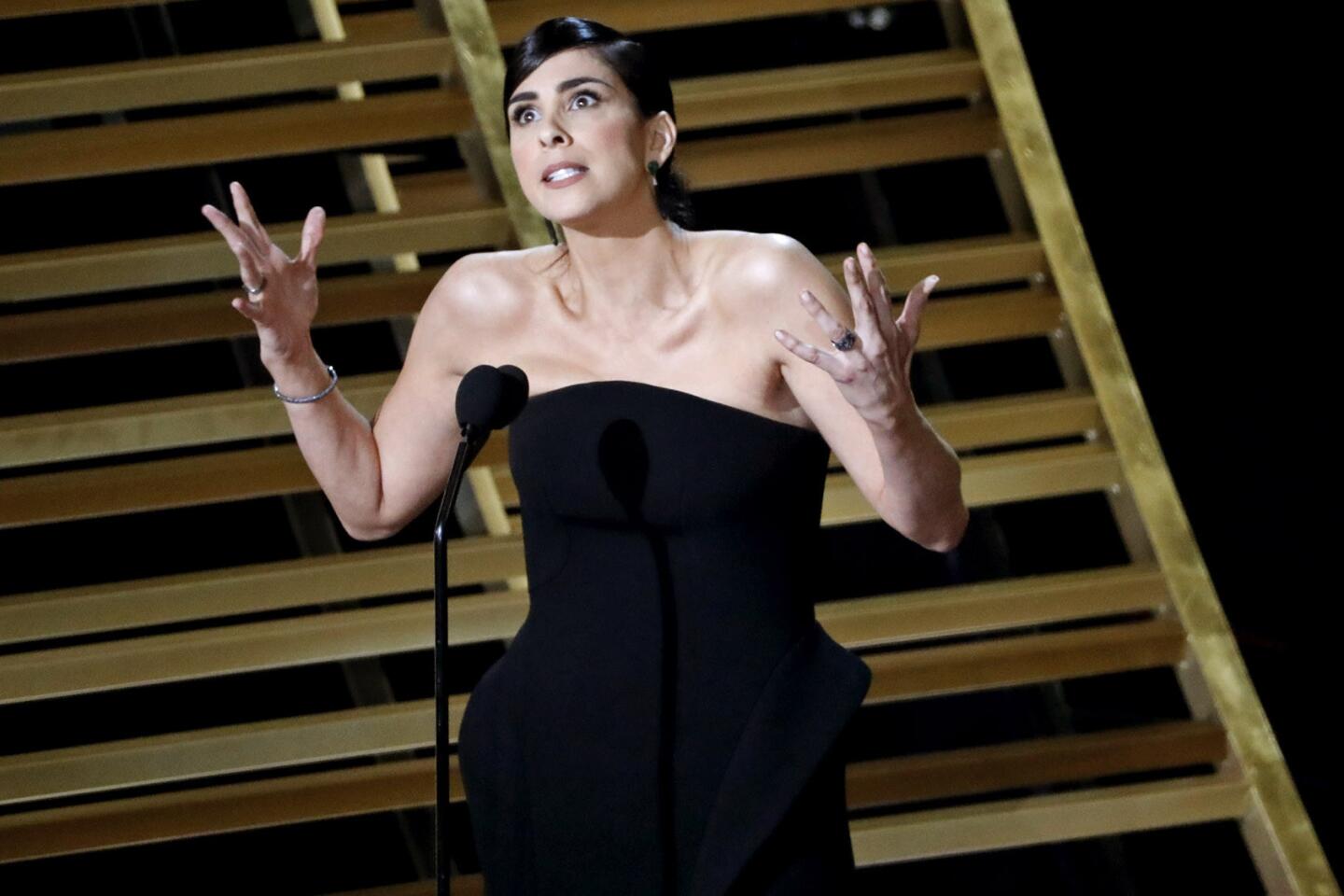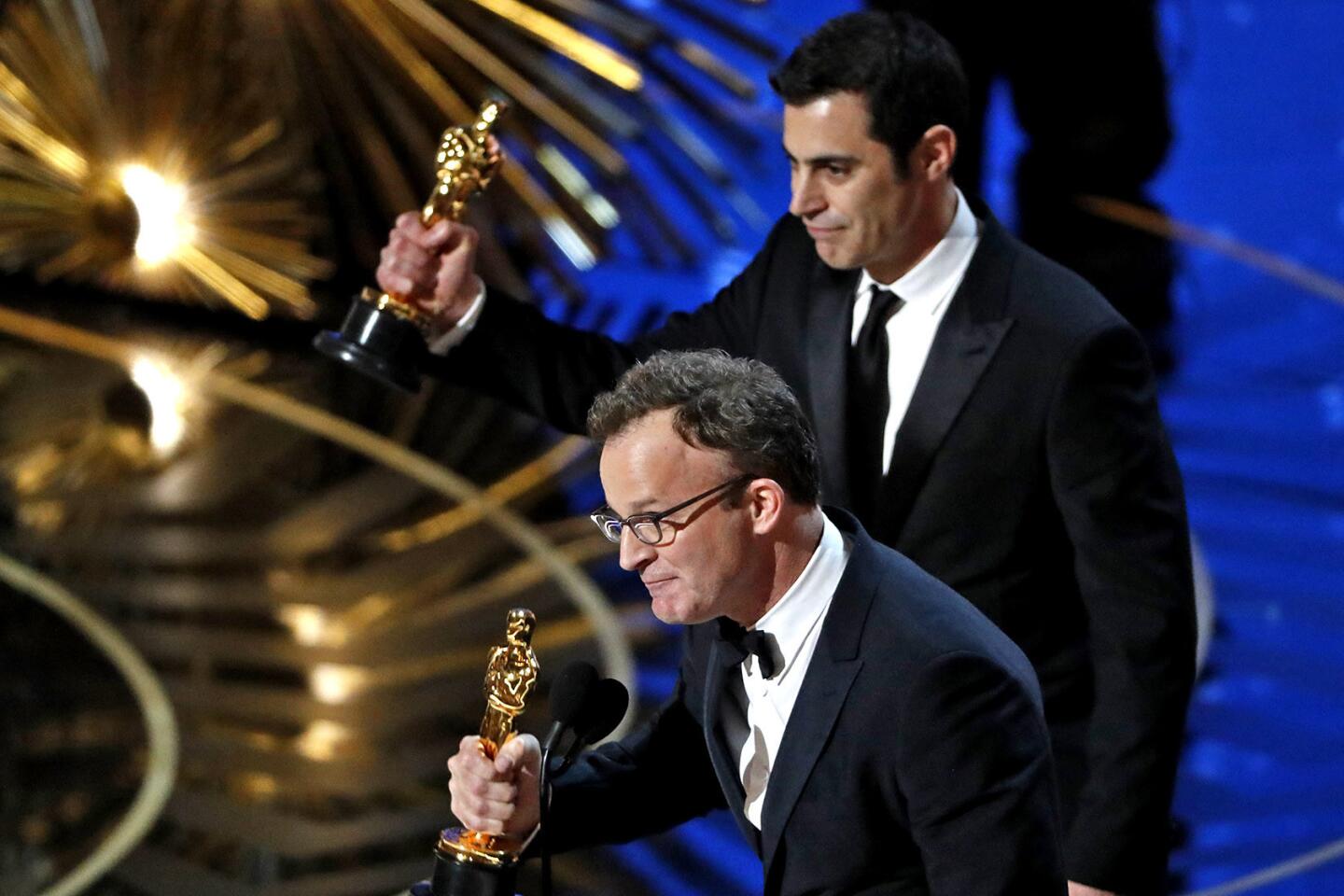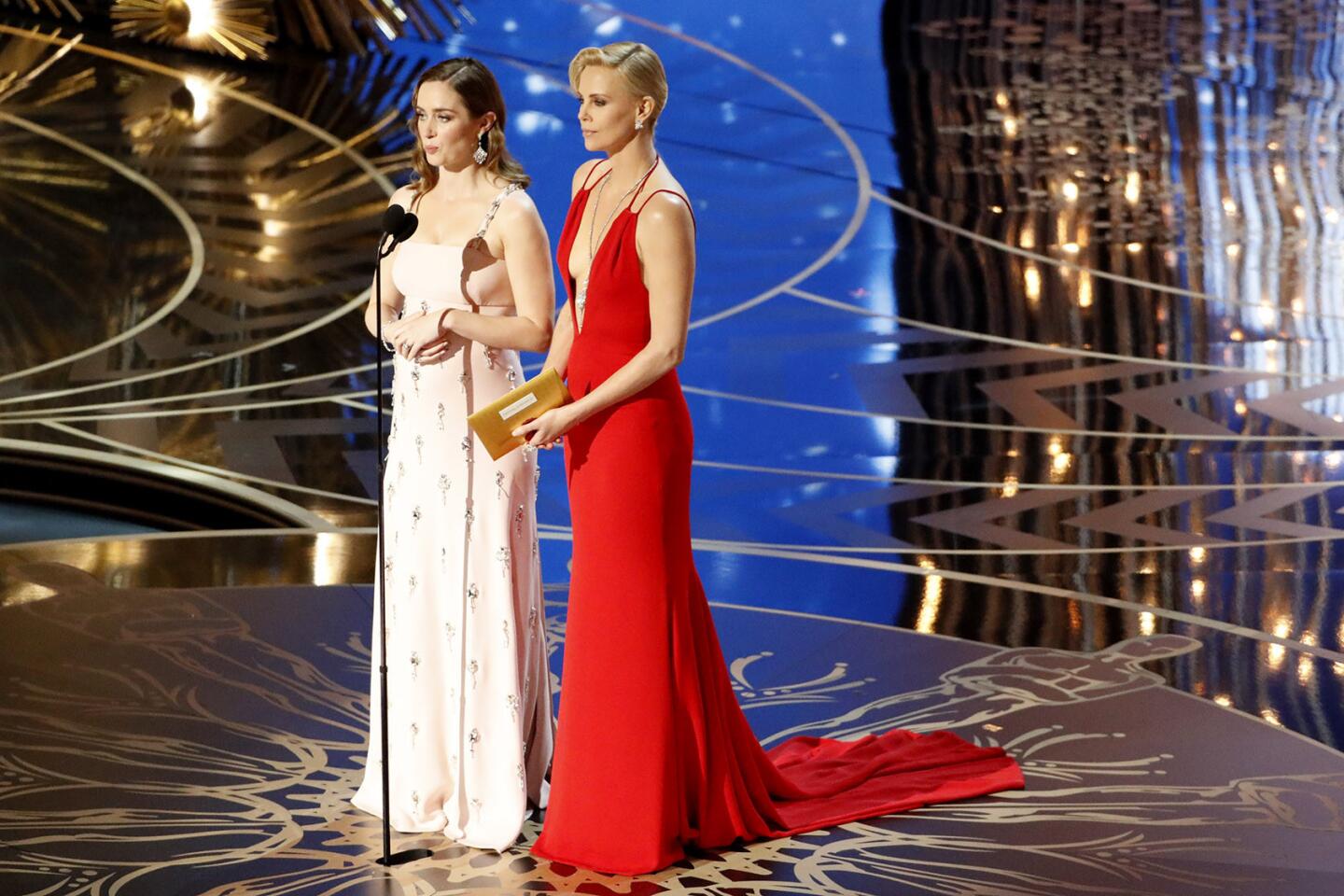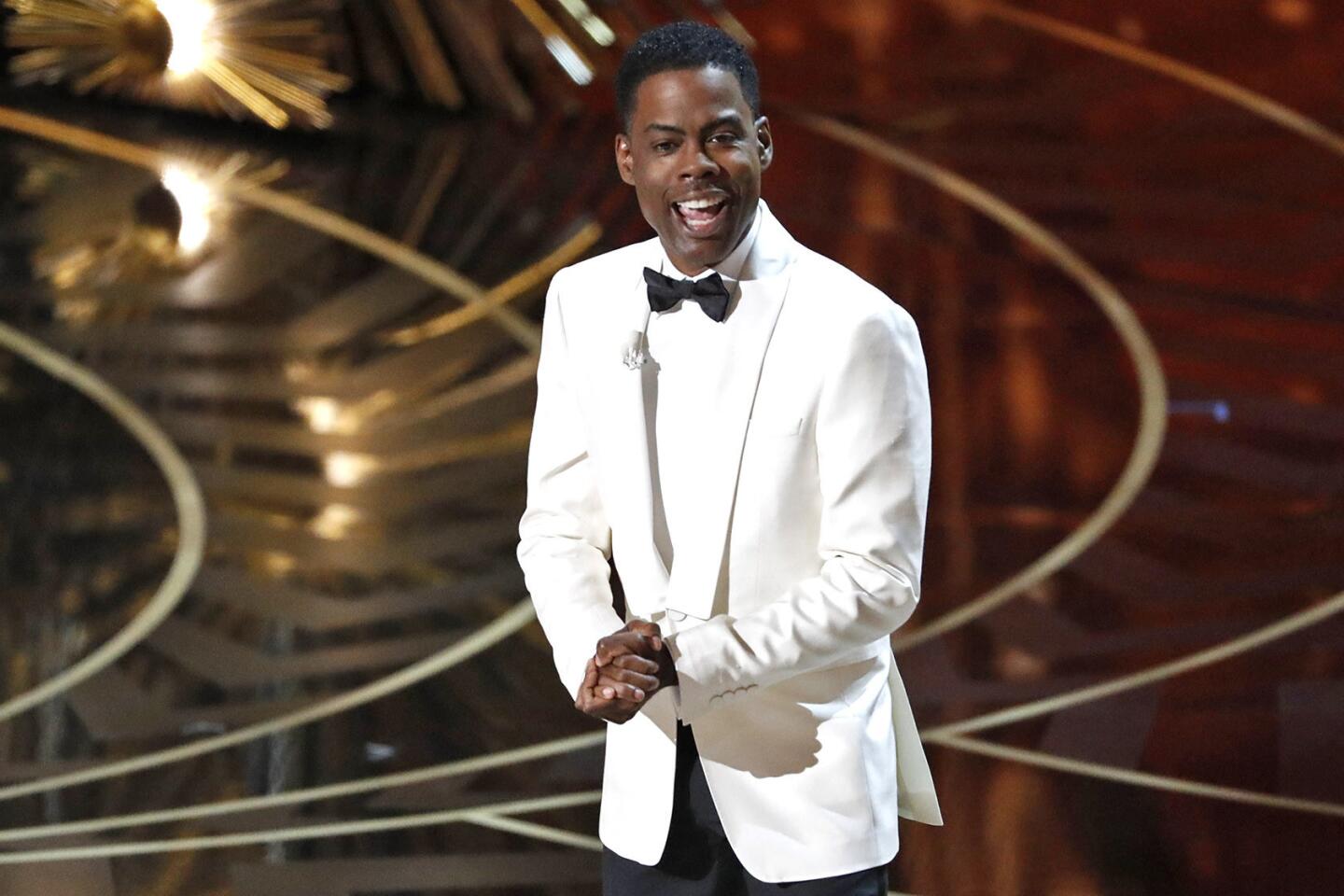34.3 million viewers for the Oscars makes for the smallest audience since 2008
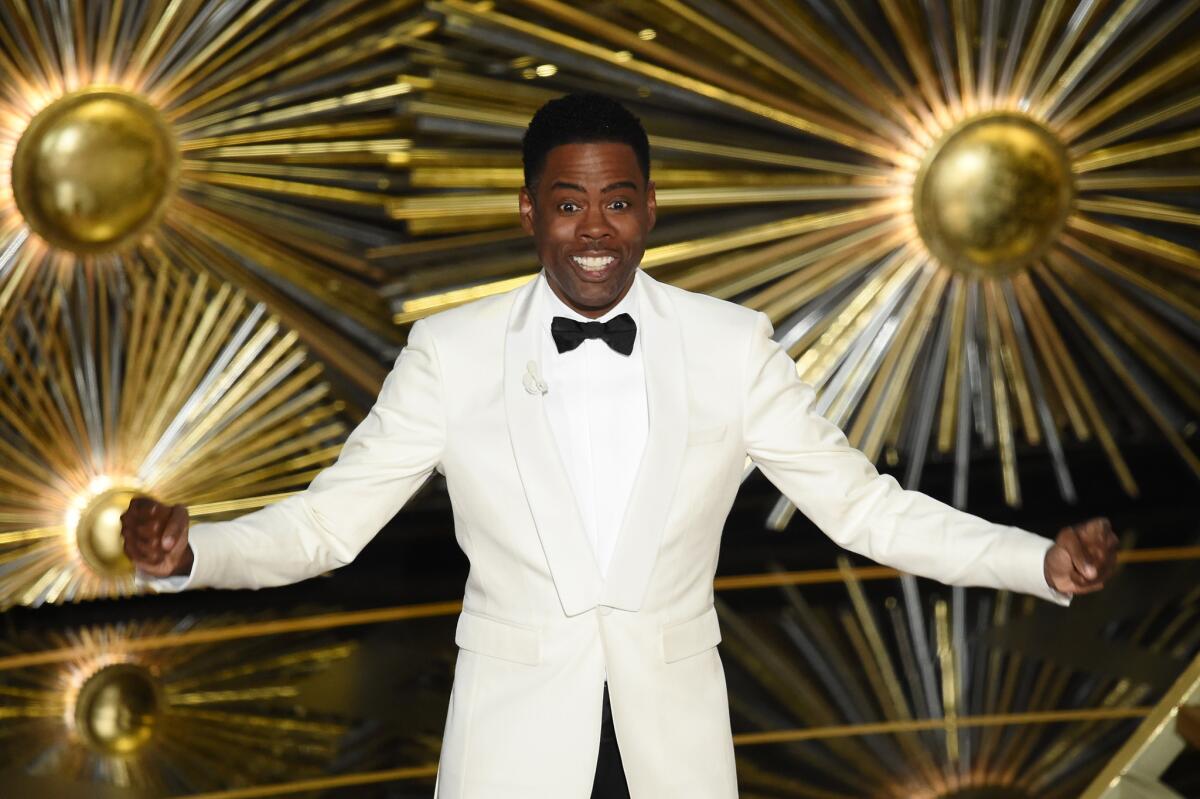
Chris Rock speaks onstage during the Academy Awards ceremony at the Dolby Theatre in Hollywood on Sunday.
- Share via
Chris Rock’s provocative turn as host of the 88th Academy Awards was lauded for the bold way he took on the lack of diversity in the film industry.
But Sunday’s buzz-worthy ceremony on ABC — where the drama “Spotlight” was the winner for best picture — still faced the head winds now common to TV award shows.
Preliminary ratings from Nielsen showed the Oscars averaged 34.3 million viewers, a decline of 6% from comparable 2015 data.
The final audience total, to be issued Tuesday, is on track to be the lowest-rated Oscars telecast since 2008. That year’s ceremony, hosted by Jon Stewart, was watched by 32 million viewers, an all-time low for the Academy Awards. The best picture award went to “No Country for Old Men,” another film that attracted little business at the box office.
Ratings for the Oscars have generally been on the decline since the last time Rock hosted the program in 2005. Increased program choices provided by online streaming services and a crowded televised awards season (the Golden Globes and the Screen Actors Guild Awards precede the Oscars) are the main culprits.
Then there are the movies. Based on Oscar ratings history, a lack of major blockbuster box-office hits among the best picture nominees did not help. While “The Revenant,” “The Martian” and “Mad Max: Fury Road” were popular with moviegoers, other nominees, including “Spotlight” and “Room,” weren’t widely seen by American audiences, a fact that provided comic material for Rock.
“Brooklyn,” now in its 17th week, has grossed $36.5 million in ticket sales in the U.S. and Canada, while A24’s “Room” has pulled in just $13.54 million at the box office as of last weekend, ComScore said.
Less clear is the impact of the prolonged public debate sparked by the lack of a non-white nominee in any of the acting categories for the second straight year.
The Rev. Al Sharpton, who led a Sunday rally against the Oscars to protest its lack of recognition for people of color, believed the boycott discussion had some effect.
“This is a significant decline and should send a message to the Academy and to movie studio heads,” he said in a statement. “Though clearly we don’t take full credit for the decline, certainly one would have to assume we were effective and part of the decline. And to those that mocked the idea of a tune-out, it seems the joke was on them.”
ABC does not yet have a breakdown from Nielsen on what portion of the Oscars audience was made up of African American viewers and whether they stayed away to any degree.
Rock’s popularity among the black audience could probably mitigate the effect of any boycott. The last time Rock hosted the Oscars in 2005, African Americans accounted for 13% of the audience. In recent years, the figure has hovered around 10%.
The politics involved in this year’s endeavor may have put off some viewers in the movie industry’s hometown of Los Angeles. This year, the local audience declined 12% to a 29.5 rating (the percentage of television-using homes in the market), lower than what the telecast pulled in New York, Chicago, San Diego and San Francisco. Los Angeles ranked No. 5 this year.
But Brian Hughes, senior vice president for audience analysis at the media buying firm Magna Global, said ABC should be happy with the audience levels among 18- to 34-year-olds — up 1% compared with 2015.
That age group has been abandoning traditional TV viewing for watching online.
Among men ages 18 to 34, the demographic that is typically least enthusiastic about the Oscars, the telecast was up 20% over last year. That increase is probably because of the presence of a host as edgy as Rock.
Hughes saw no signs that a boycott threat chipped away at the audience.
“Overall I don’t think it would have much of an impact given the trend of how people are watching TV,” he said, noting the migration to online video.
That trend, which has depressed the ratings of prime-time shows, is sneaking up on live events, which still deliver the largest audiences on television.
This year’s Grammy Awards on CBS were down slightly to 25 million viewers, but lost 9% this year among viewers ages 18 to 49. The Golden Globes on NBC were off 4%, to 18.5 million viewers.
stephen.battaglio@latimes.com
More to Read
Sign up for The Envelope
Get exclusive awards season news, in-depth interviews and columnist Glenn Whipp’s must-read analysis straight to your inbox.
You may occasionally receive promotional content from the Los Angeles Times.
